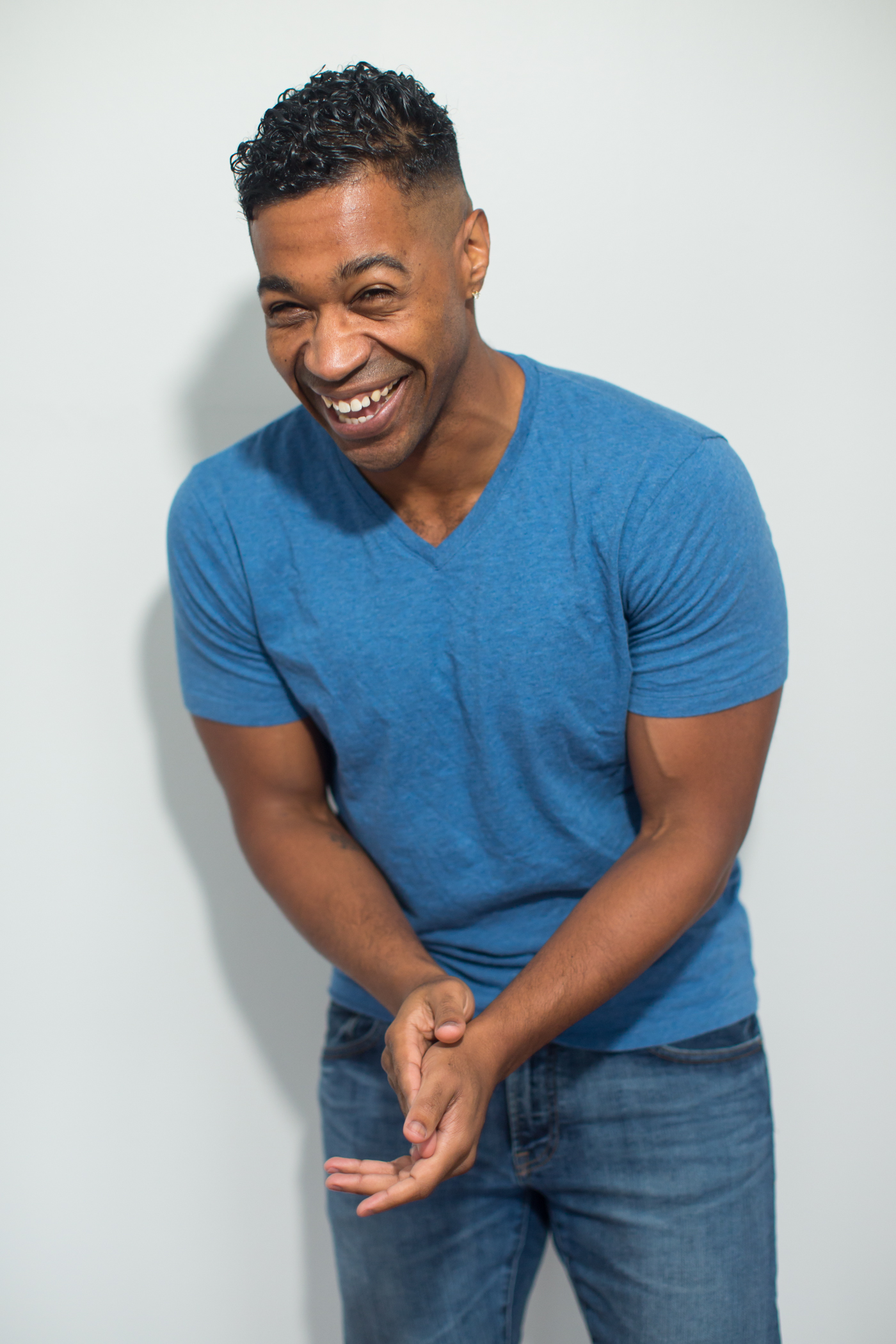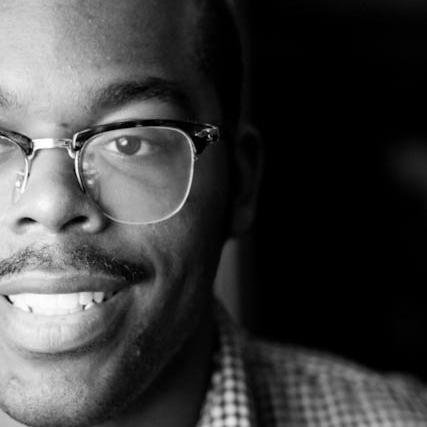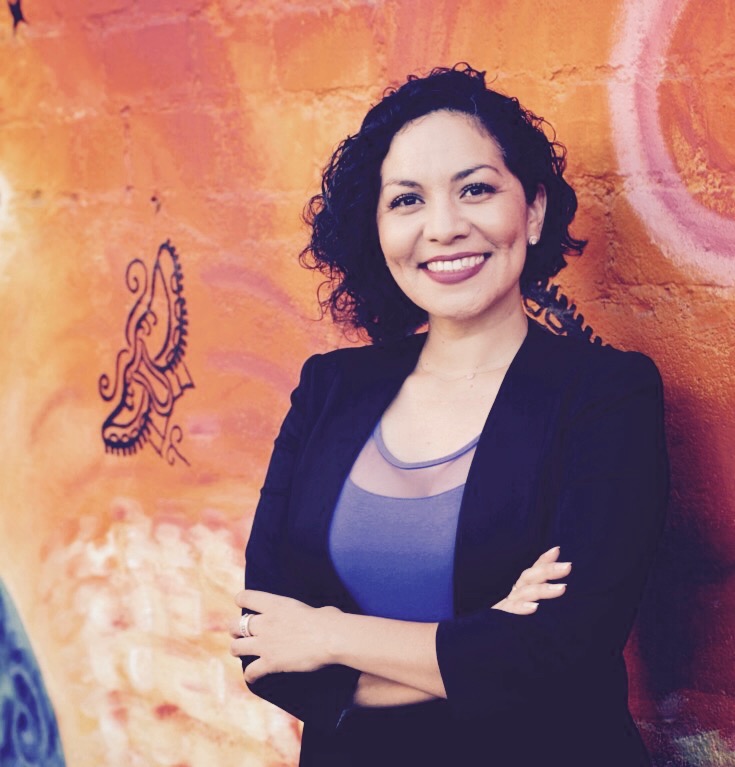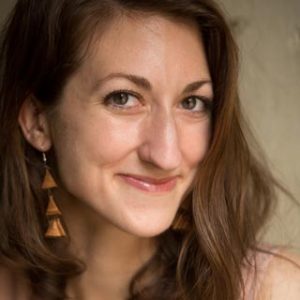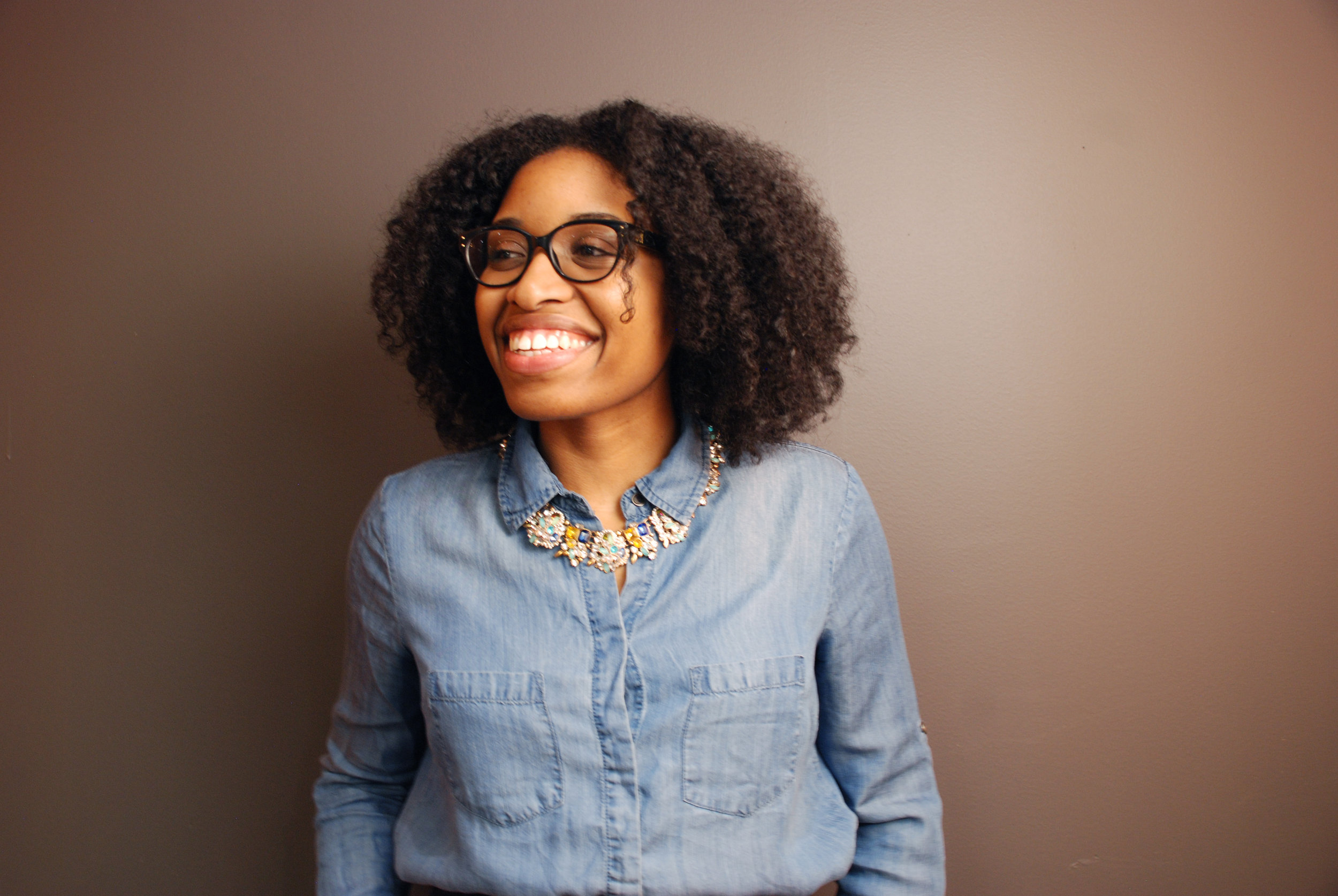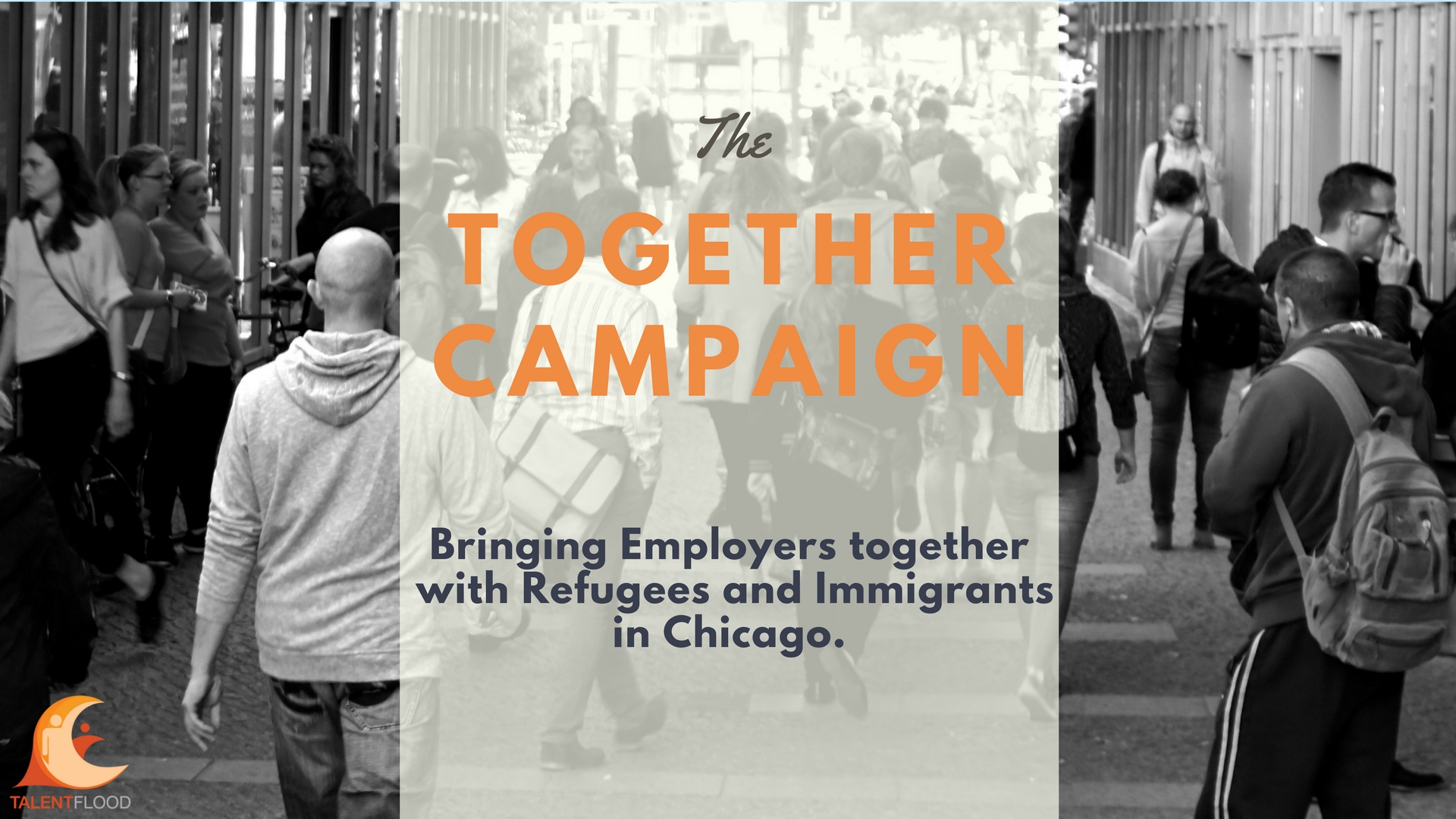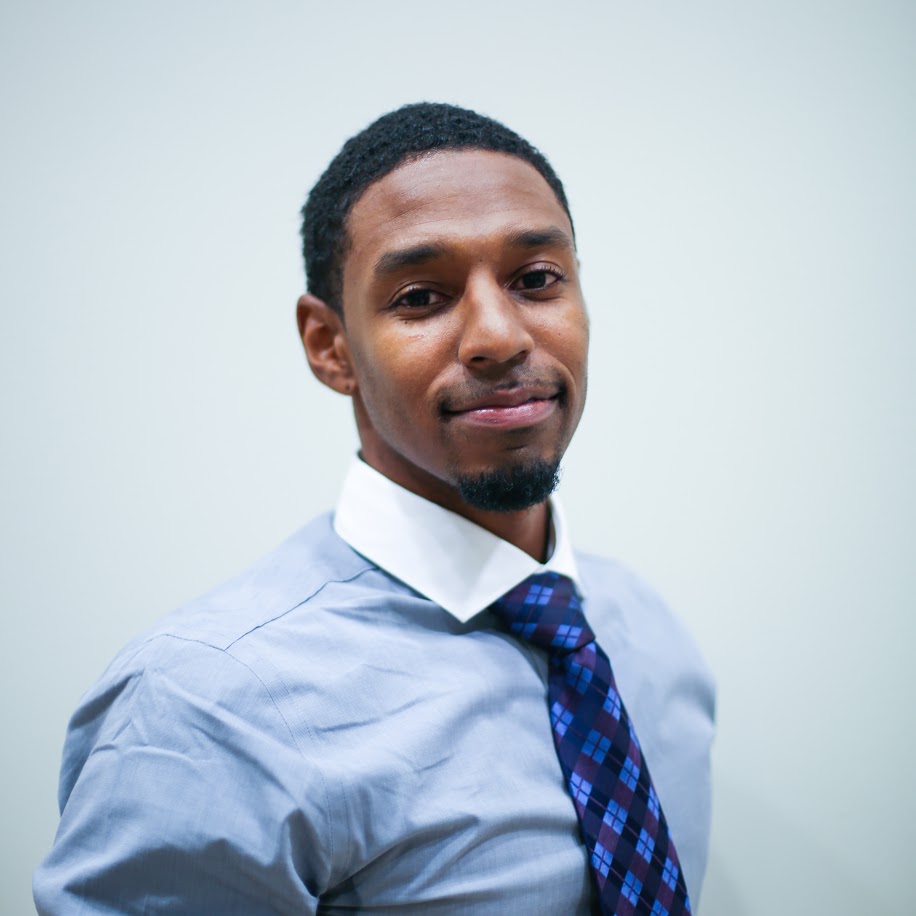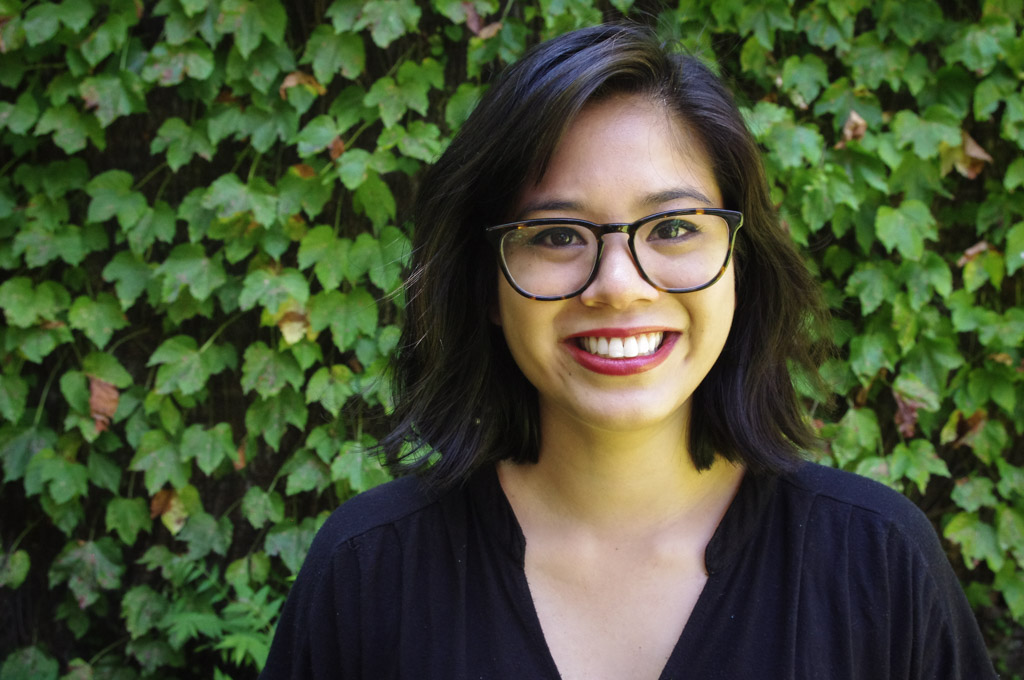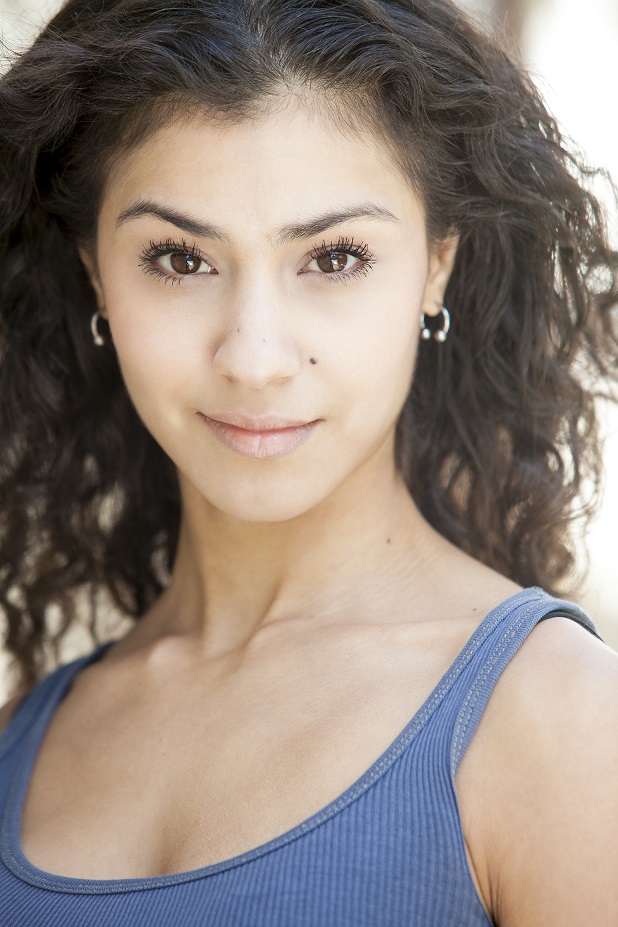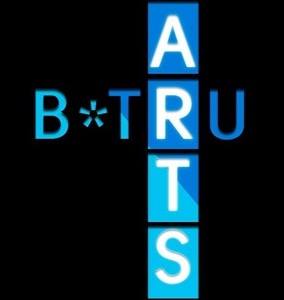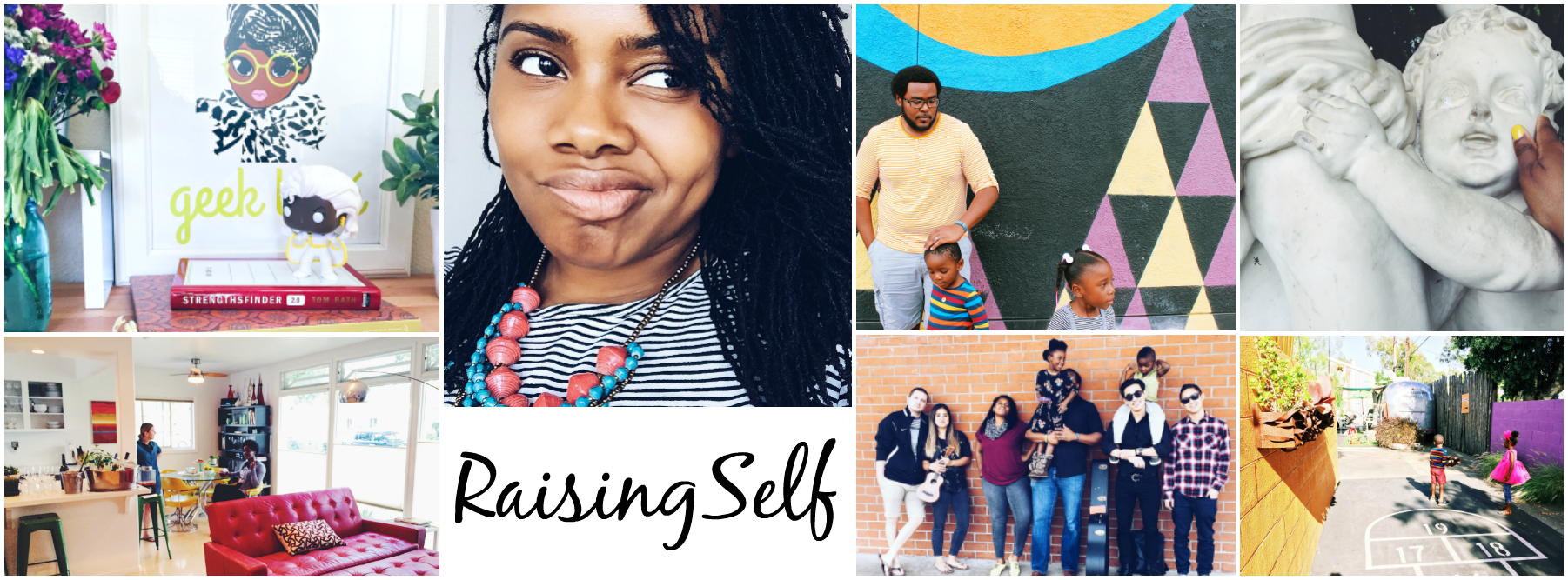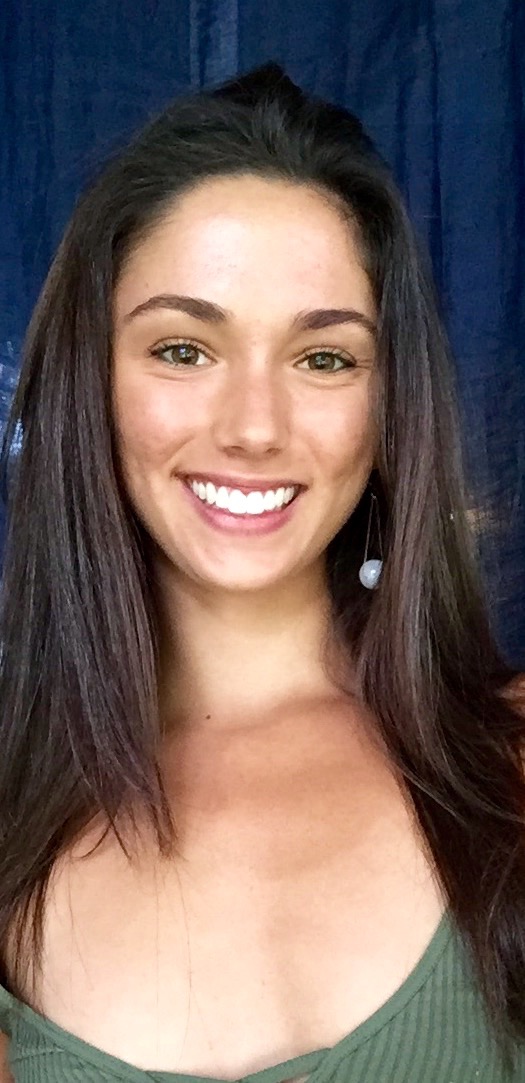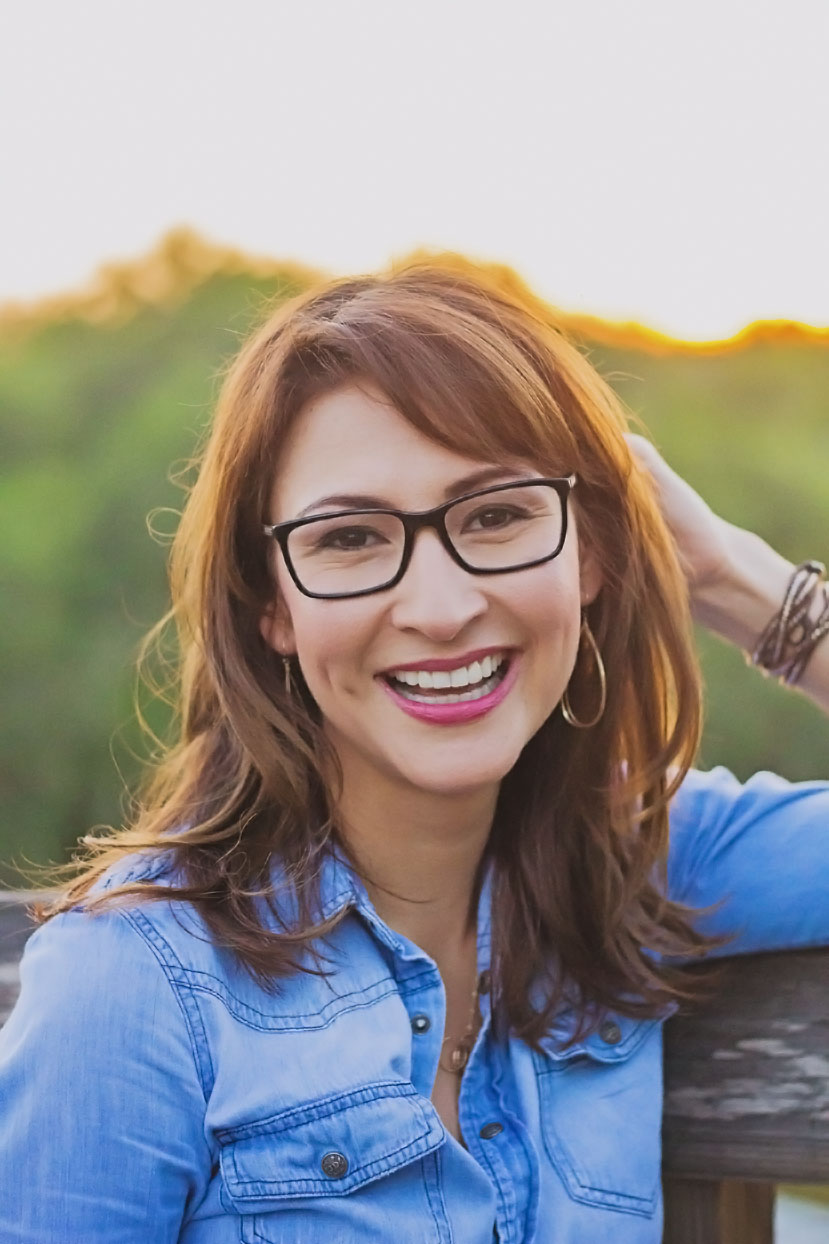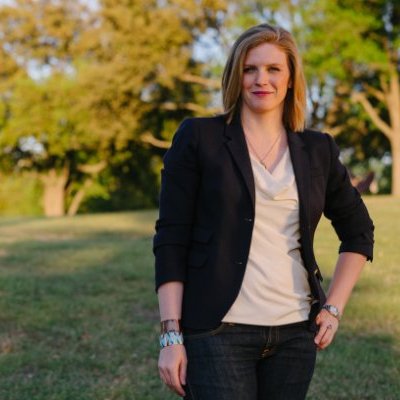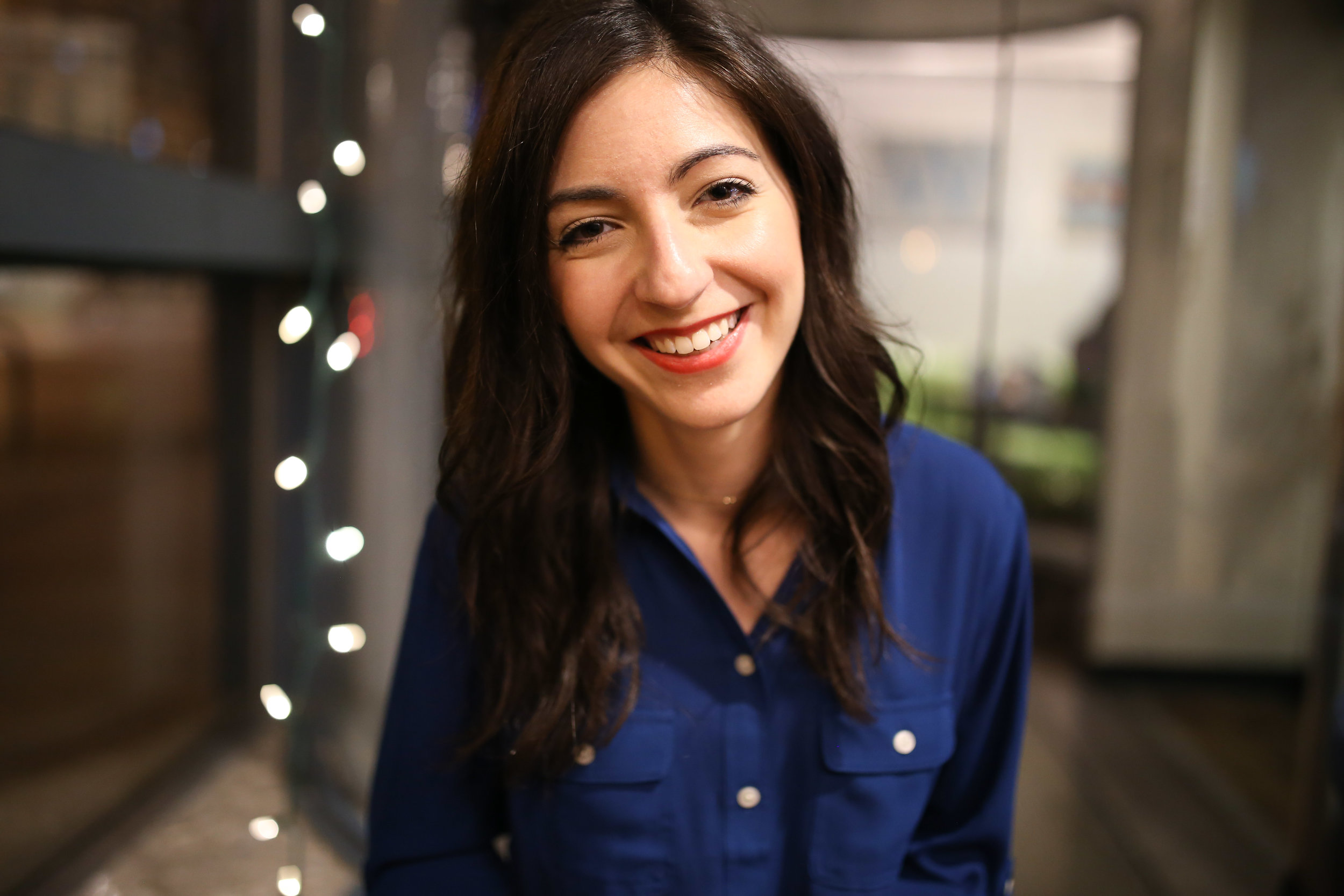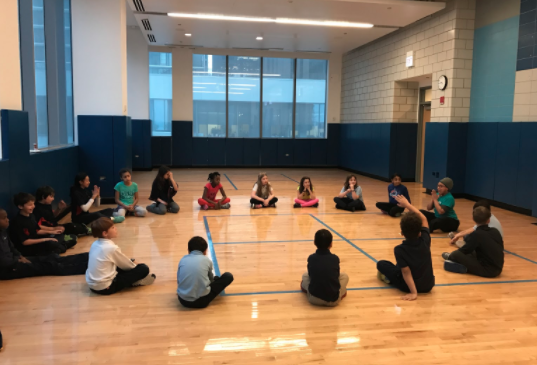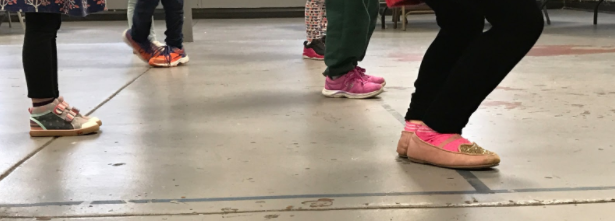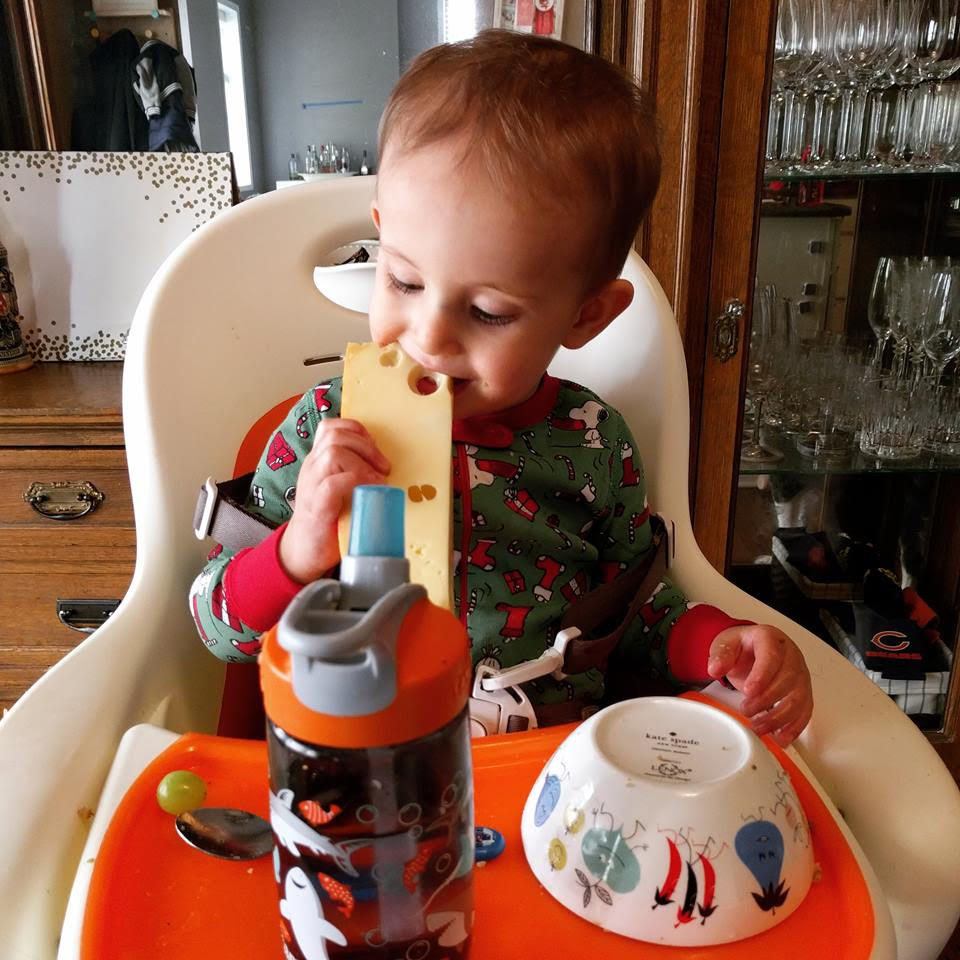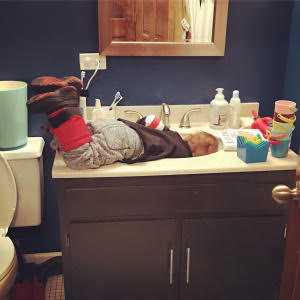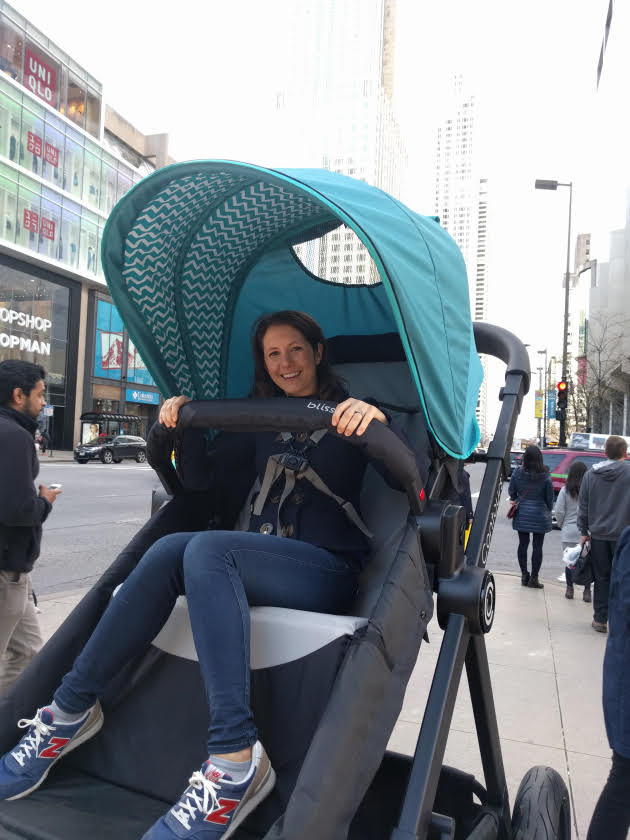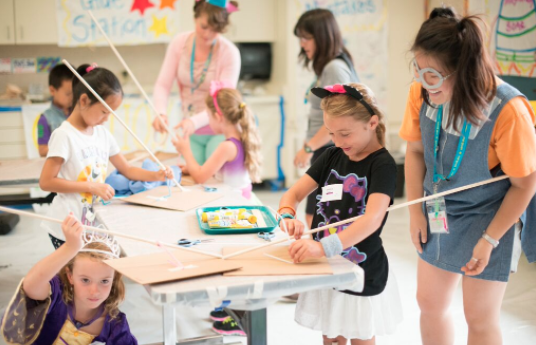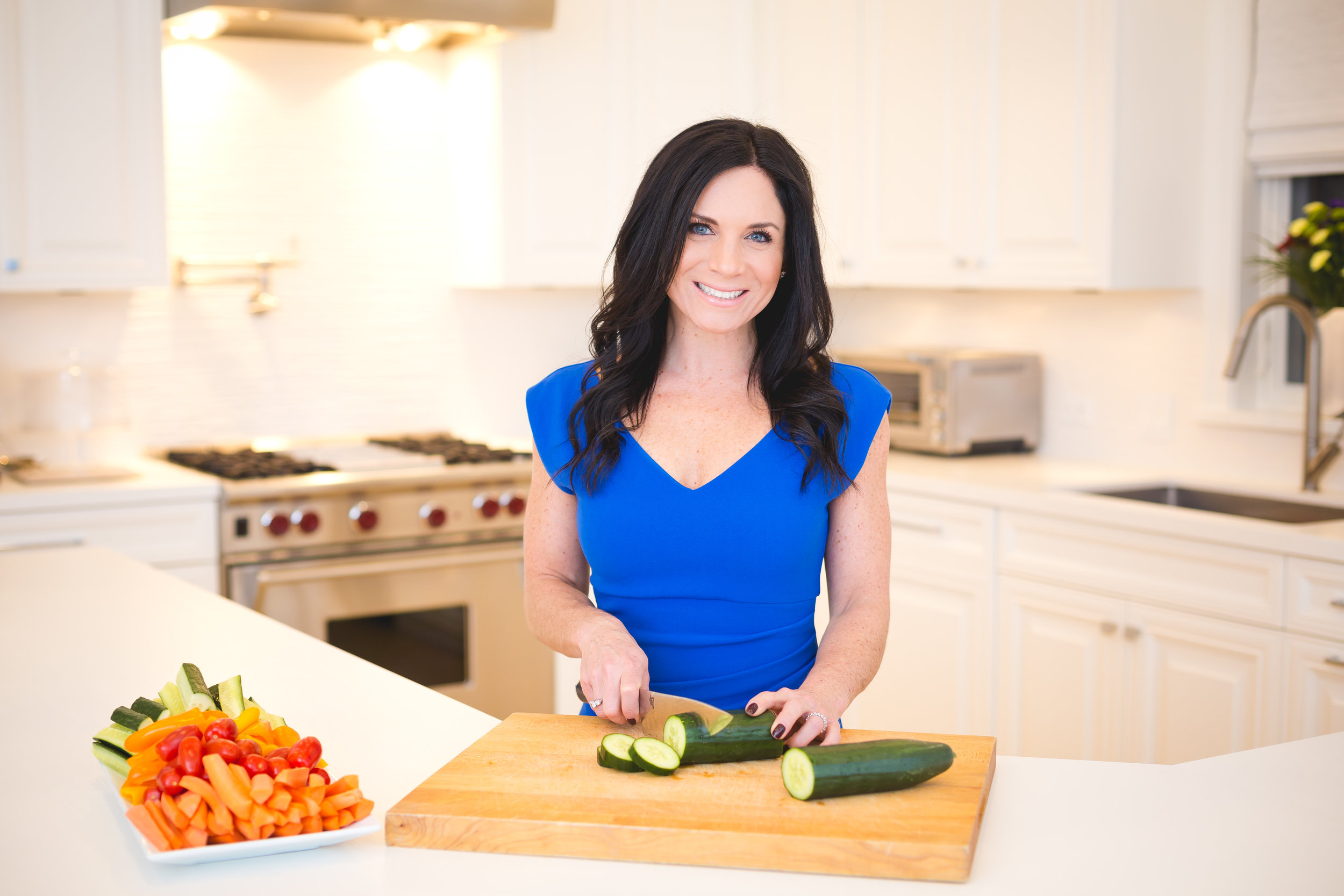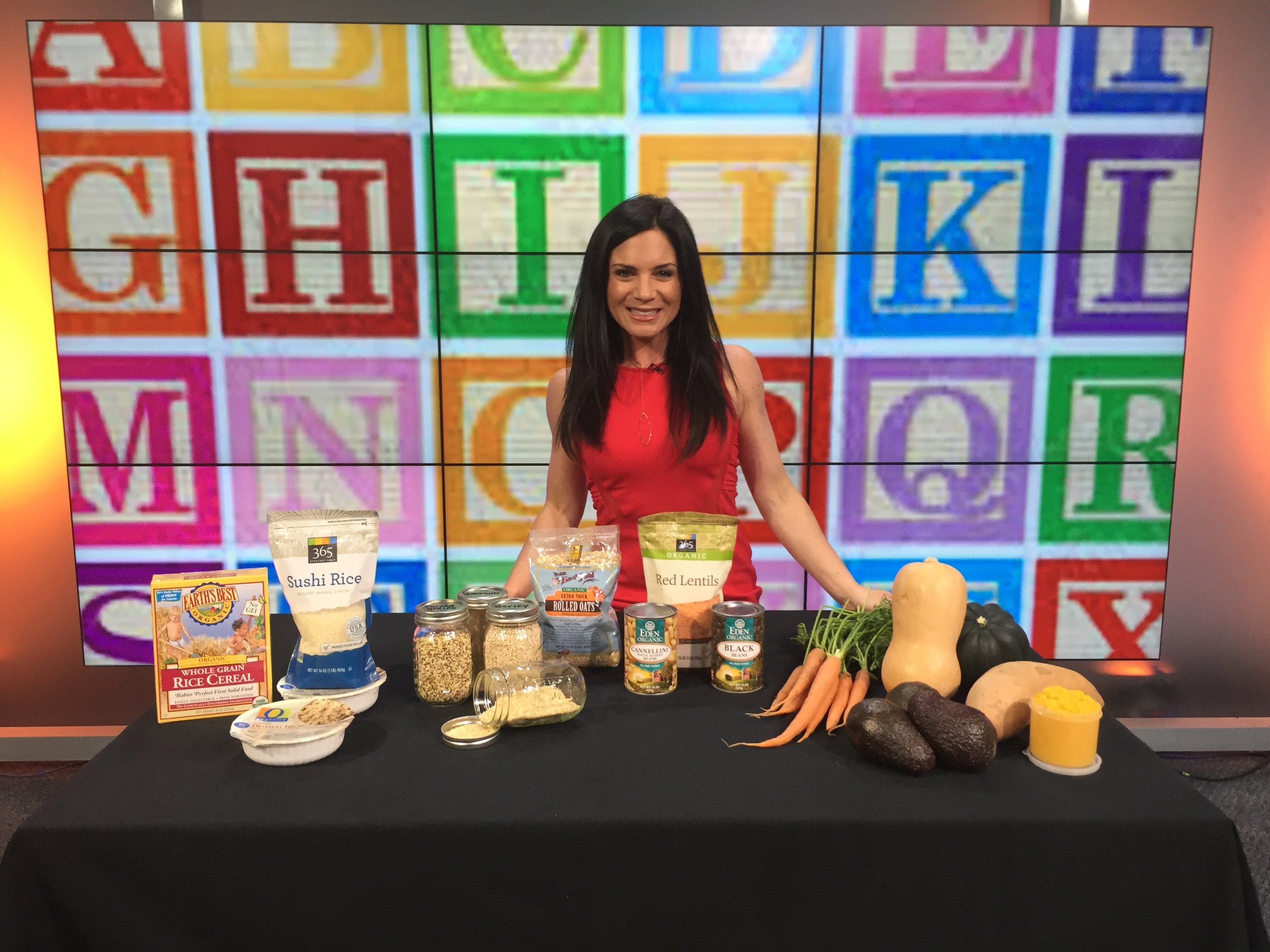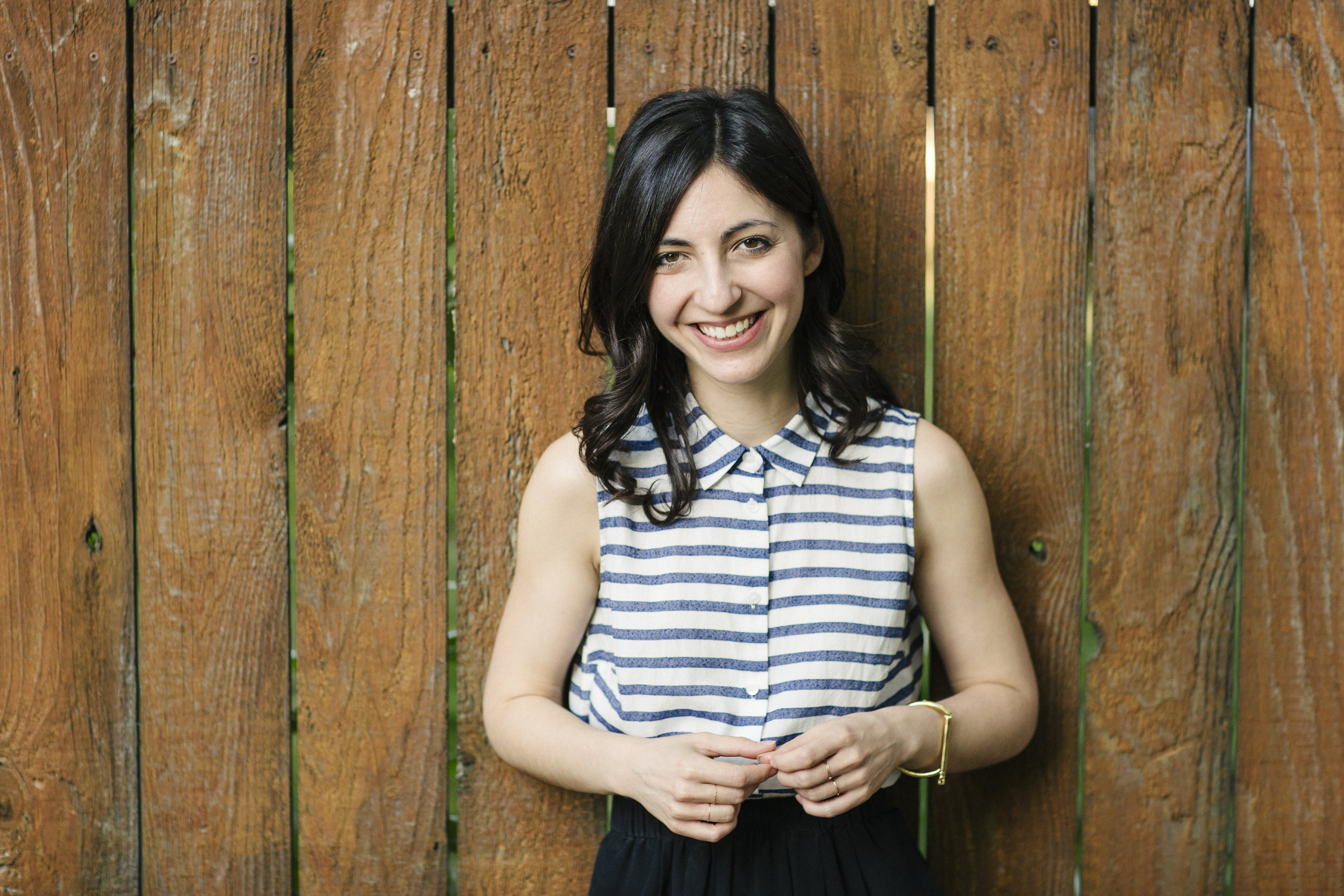What are 3 qualities that an entrepreneur should have?
I think that every successful entrepreneur has grit, curiosity, and a healthy dose of delusional thinking.What inspired you to create Tiny Docs?
We’re trying to solve something that is deeply personal to me. As a child I had my fair share of hospital visits. I did not have a chronic disease, but I went to the emergency room more than the average kid. I encountered a lot of doctors who were smart and well-intentioned, but weren’t the best communicators. A visit to the doctor or emergency room can be very scary for kids and parents. That fear is compounded when people do not understand what is going on. I had a novel solution for the problem, which I was super passionate about, a problem that really irked me. So, I started Tiny Docs, built a team and started solving the problem.What impact do you hope Tiny Docs will have on families?
Our theory for change with Tiny Docs is that if you educate kids and families about health, allay their fears a bit, it will lead to better health outcomes. We want to build a healthy movement around good health and smiles. We want to make a billion people smile in 100 languages.You have had a lot of varied careers (producer of short films, an attorney, co-founder of Tiny Docs), what was/was there a common thread?
I’ve always had a lot of varied interests. My first job after college, I taught English at a bilingual elementary school in Spain. Then I went to law school, became a lawyer and got involved with filmmaking. In retrospect, I can’t tease out a common thread. I pursued things that I found interesting and intellectually stimulating at the time and I was able to connect the dots later.How do you define self-acceptance?
Self-acceptance is a profound knowledge or consciousness of self, knowing your superpowers and strengths. But also possessing the humility and strength to acknowledge your weaknesses.What have your careers taught you about self-acceptance?
My various jobs have helped me understand that the journey of self-acceptance is endless--a beautiful unfinished project. Every day is a new discovery of self.What is some advice you have for someone who wants to start a business venture, but doesn’t know where to begin?
After you have identified a problem that you want to solve, spend a lot of time talking to the community that you want to serve. By doing this, you’ll gain key insights about how to build a business that actually solves their problem. Next, find mentors who can help provide valuable business guidance and emotional support. Entrepreneurship is not for everyone. It is one of the hardest things that I have ever done in my life. Some days fluctuate between the poles of feeling like you are going conquer the world and abject failure. But, if it is for you, there is no greater thrill.
How do you define success?
Success for me has a variety of different definitions. Personally success is living unbothered and my basic needs are met and I can be surrounded by love, good food, good spirits and rest. Professionally, when I’m successful I’m using my experiences and training to help the marginalized people + being appreciated for for my effort socially and/or financially. That may mean coaching and training, that may mean building tools or running campaigns, that may mean advocating or negotiating. Spiritually success for me is kinda tricky, I’m trying to at both times be in tune with myself so that I can present my whole, authentic self to the world AND get over myself, meaning not getting bogged down in my own ego or pettiness.What is it about your career that excites you?
I work at the intersection of technology and social change. I love being able to help organizations change the world thru tools, training and relationships. What I really love is watching people step into their own leadership and recognize how skilled and powerful they are. I grew up as a short, mouthy, poor kid from a part of Chicago that no one mentions unless something bad happens. I frequently felt marginalized and looked past. My career has shown me that my people, my voice and my experiences are valuable and that I always have had and always will have everything that I need. A national platform, name recognition for my work and great perks are awesome as well.What was a hard lesson you learned when you were first launching your career?
Your reputation will follow you *wherever* you go, so always give your best effort, be honest and be kind to people (even when they’re jerks). You never know who will wind up where, you never know who will talk to who. I learned this by running into people I’d never thought I’d see again in the strangest places and situations. Once I was living in Chicago and applied for a job helping a fundraiser with his organization, and we’d gotten through 2-3 interviews and he just disappeared, not even a ‘thank you but no’ email. I was pretty upset about it and years later I was managing a campaign he’d been brought into as the consultant. I never mentioned that we’d met in the past. Surprisingly we hit it off immediately and when I made the move to Washington, DC he hosted me at his home for a month, introduced me to his network and became a great friend. Had I held a grudge like I’d wanted to at the time he a) likely would’ve remembered me for a very negative reason b) we definitely wouldn’t have gotten on as well.What are 3 of your core values?
Generosity (give, give, give), honesty(live your truth) and acceptance(accept the person who shows up, not the person you want to see).What do you do in a moment when/if self-doubt starts to challenge you?
When I have self doubt I think of my mother’s strength, I think of my obligations as free person and I try to express gratitude and gentleness to myself. I’m 31. At this age my mother I was 11 and my older brothers were 12 and 13. She’d recently remarried and purchased her first home. She’d overcome a divorce, a bankruptcy and the difficulties of single motherhood by that point while also helping to raise her sister's children and her younger sister. I draw from her when I’m charting new territory. I also think about my privileges. I’m a straight man with no debilitating disabilities, with no citizenship issues, who is employed and employable, who has friends, family and resources. I’ve survived numerous failures. I’ve traveled the world, made national and international press, run with the bulls and much more. I accomplished those things because I was brave, open hearted, appreciative and creative. Those traits don’t go away because your luck is up or down. If you keep stepping into your positive traits you’ll continue to do great things. Lastly, I try to be gentler with myself. There is really only so much I can do. If I’m proud of my effort then I try to let go of any doubt.Do you have a quote that has been particularly inspiring to you?
“It is not your responsibility to finish the work, but neither are you free to desist from it”. It’s a quote from the Jewish tradition that hit me at just the right time and came from someone I find very wise. It has been inspiring because I had a pretty brutal 2016. I lost a grandparent, was trapped in a job I hated, was working enough hours for a full time second job on a project that had become publicly toxic, I had a breakup. I had a nagging but minor sports injury and, well, I work in elections and the elections went pretty poorly for my side. I was working as hard as I could on everything and felt the only thing I got in return was hurt. It felt like regardless of what I did everyone only asked for more. I felt attacked, unseen and abandoned and exhausted. When I finally got a little time to breathe the quote found me right at the right time. Whereas normally I’d cling to the latter part of the quote ‘but neither are you free to desist from it’ at this moment I found the early part relevant ‘It is not your responsibility to finish the work’. After all of my work wrapped I took a break for the first time in years: I didn’t look for a job,I didn’t work on my side hustles, I didn’t plan or scheme, I really did next to nothing for about 2 months. I reduced the amount of time I was on social media, I took public transit or rode my bike more instead of taking Lyfts, I worked out, I did nature things, I cooked for myself, I read a bunch, I meditated, I got therapy, I watched movies, I went for long walks with friends, I cried. For the first time in probably 3 or 4 years I centered myself. I’d realized I’d been hoping to grow up or have it together and was not really enjoying myself in the journey. I recognized that there is no ‘it’, you’ll never make ‘it’, there’s always a new challenge, you have to find contentment with what and where you are. Since then I’ve turned down multiple jobs and started working for myself, I’m working fewer hours than ever exceeding my old salary working primarily on projects I feel legitimately excited by, spending a lot of time researching my family, enjoying talking to my grandma and reconnecting to my father and just doing things that give me life. As you get older there’s a lot of pressure to have it together, and so there’s this rush to have a higher salary, a nicer place to live, a better title. When you’re early in your career achievement is easier, it takes just a little moxie and elbow grease, because you’re relatively unattached and you have relatively little there are boundless opportunities. As you get older though your standards get a little higher, your needs become a bit greater and so you start making considerations based on those personal and societal needs and success requires a little more luck, which is harder because luck is mostly a function of flexibility and with age and responsibility reduce flexibility. It’s easy to find yourself working a job that dims your light, or surrounding yourself with people who don’t make you feel good because you feel the need to keep up appearances. The quote was inspirational because it allowed me to acknowledge how hard I’d been working and gave me permission to step back. In my work there is no end game, there won’t be a point in my lifetime where I can say, ‘Crushed it, everything is done, justice is done’ and by slowing down a bit I’ve grown in appreciation for how awesome my life is already and how much I’ve done, I’m nicer to people because I’m nicer to myself, as well opportunities have flowed a lot more easily and I’m having one of the more prosperous years of my life professionally, personally and spiritually.What is something you’ve learned to accept about yourself recently?
My flaws aren’t going away. There will be times where they’re more present or less present but I’m wired the way I’m wired. No amount of chanting, meditating, therapizing, or wishing will completely change that. I’m surly, I’m sometimes impatient, I should speak more loudly both in volume and figuratively. I’m political and have weird class issues. I’m also charming and loyal and resourceful and funny and a decent cook and a great leader. I’m cool with whatever Harold shows up.What is something you hope to teach to other people?
Your experiences are valid, your feelings are valid. You’re dope just the way you are. Not if you get the right job or the right partner or wear the right clothes or you say the right words (though you shouldn’t stop striving stop striving for your goals). Right now as you are. You are enough. Second, ask for what you want. It takes practice but figure out what will make you happy and go after that. Lastly, Excel and data management, I hope to teach people Excel and how to better use naming conventions and documentation in data management.
An Inspired Dream with Aurora Anaya-Cerda
By Danielle Echols
As a company, we are committed to education in every aspect. We believe the arts, in any capacity, can empower and uplift the soul. So, when we encounter people like Aurora Anaya-Cerda, we have to share their story. We all know the saying "knowledge is power." Well, Aurora definitely took that to heart. She was the founder of La Casa Azul Bookstore, an independent bookstore in New York. Patrons could find every genre of literature, music, and fellowship with people from all over the city. The store was so revered that in 2013, she was nominated and recognized as a 2013 Crowdfunding "Champion of Change" by the White House. The store has since closed, but her commitment to education remains.
A native Angeleno, Aurora has returned to LA after living in New York for 11 years. She has been a teacher, curator, cultural worker, and entrepreneur - and is currently a student at the USC Marshall School of Business. She is passionate about art, education, literacy and the impact that social enterprises have towards a more just world. Recently, she talked with Design Dance about social entrepreneurship and why she felt opening La Casa Azul Bookstore was so important. See her story below.
Tell us a little of your backstory...
Books saved my life - they were my refuge, my escape, my safe space.
At age 12, I read The House on Mango Street by Sandra Cisneros and it was the first time I saw my reflection in a book: a young Latina, whose family and neighbors were so like the people I knew in my own life experiences. The House on Mango Street was the first piece of culturally relevant literature I read, and it had a tremendous impact on me. My journey as an educator, artist, and entrepreneur has been strongly influenced by Cisneros’ book.
When did you first recognize yourself as an entrepreneur?
I worked in education and the arts for 10 years before I considered becoming an entrepreneur. The idea for La Casa Azul Bookstore was born in 2006 when I signed up for a small business seminar. I didn’t register for the seminar because I wanted to open a bookstore, I registered because I wanted to learn a new skill (entrepreneurship). That seminar changed the direction of my life.
For the next six years, I would lose track of time when reading, planning, strategizing and visualizing what the bookstore would be. I felt like I had a purpose. I relied on those moments when it seemed that the goal was impossible to reach. Finally, in 2012 I opened La Casa Azul Bookstore in East Harlem with the support of 500+ funders that helped me raised $40,000 in 40 days.
La Casa Azul Bookstore reached incredible milestones in New York - not just as a bookstore, but as a gallery and cultural venue featuring writers, musicians, visual artists, and dancers. We hosted 200 programs a year, sold books that reflect the voices of writers of color, transformed into a literary hub, a safe space and a platform for multiple audiences.
What was the inspiration for La Casa Azul Bookstore?
One of the reasons I decided to open La Casa Azul Bookstore was because Chicana/o literature was critical in my own education and identity. Growing up, I read everything I could get my hands on, from cereal boxes to magazines and comics. When I discovered Chicana writers like Sandra Cisneros and Rudolfo Anaya, I connected to their stories and then began seeking out more books that reflected my identity and experience. By then I was already in high school and I wished I had read about them earlier!
With La Casa Azul Bookstore I aimed to create a space for children of color to see their reflections, where diverse voices were celebrated and where neighbors could share resources and build community.
What were some of the challenges you faced when managing the bookstore?
Running the bookstore from 2012 to 2015 was the most rewarding and challenging experiences of my life. The physical and mental exhaustion was expected but NO ONE told me about the emotional toll of running a business. Most days I felt that I was on the right path, that running the bookstore was exactly what I wanted to be doing… and there were days when fear and anxiety crept in. I was experiencing impostor syndrome and I tried to “do it all” -- until I couldn’t. With support from friends, bookstore staff and family, I learned to lean on others, to ask for help and to take care of my physical and mental health.
La Casa Azul Bookstore was in operation until 2015, when I decided to close the store to move back to California, attend graduate school and plan the next adventure. It was not an easy decision to make, and I miss the bookstore every day - but I have learned to have more self-compassion and self-acceptance in the journey.
How did it feel when you were recognized by the White House?
I received two emails from the White House but I ignored them because I thought it was junk mail - until a friend told me she had nominated me as a “Champion of Change”. I was one of 12 people recognized in June 2013 as Crowdfunding “Champions of Change.” The event focused on entrepreneurs who exemplified the promise of crowdfunding to fuel the growth of startups, small businesses, and innovative projects across the Nation.
I celebrated the bookstore’s first anniversary on June 1st in New York and took a train to DC the next day. Speaking at the White House was one of the highlights of my professional career and it was the perfect way to celebrate our first year in business.
What are some projects you are working on now?
I’m a student again!
I recently completed my first year at USC Marshall School of Business, in the MS Social Entrepreneurship program. I have enjoyed learning about social entrepreneurship, creative placemaking and the intersection of the two. I learn from every workshop/class/book constantly adding to my educational toolbox.
How do you define social entrepreneurship and why do you think it’s important?
Every action has an impact and it’s a matter of being intentional on having the most positive impact possible on people and the environment. To me, social entrepreneurship means taking other people and the planet into account when making all decisions in an organization.
Not only is it important, it’s absolutely necessary! We can no longer ignore social and environmental issues, we need to demand change from companies and use our individual and collective power to fight against injustice - knowing that all of our actions impact our society and the world.
What is the legacy you hope you are creating?
A story can be a window into another person’s experience, or a mirror that reflects your own. The majority of the books that I read as a child were windows -- an opportunity to look into the life/world of other people, other cultures, other experiences. When I read “The House on Mango Street”, I was looking into a mirror -- seeing a reflection of my own life and world.
Simon Sinek said, “Passion comes from who you are”. I am passionate about creating spaces where children can hold mirrors, especially for to those who have only seen through windows.
With La Casa Azul Bookstore we planted seeds in the minds and hearts of children who were exposed to books and stories that served as reflections of their own stories. In future years I hope those seeds flourish and inspire kids to follow their own passions.
Aurora Anaya-Cerda will be speaking at our Acceptance Tour in LA on Monday, May 22nd. For more information about Aurora, visit her links below.
LinkedIn: Aurora Anaya-Cerda
Articles: White House Archives , Do What You Love
Exploring the Power of Dance with Sydney Skov
By Danielle Echols
Sydney Skov is the creator of Free Body Project. She is also a lifelong dancer who is dedicated to helping others, working with nonprofits in the field of international development in countries across the world. After studying French and African Relations at New York University, she was set on discovering how she could combine all of her loves to create a career. She traveled to Kolkata, India and worked with a nonprofit organization using dance and dance therapy as psycho-social rehabilitation for survivors of human trafficking and violence. Out of this experience grew a greater appreciation for what movement can do. While dancing professionally in her home state of Oregon, Sydney started Free Body Project, an initiative that supports the individuals and organizations around the world using dance as a primary tool to address violence, inequality and the ramifications of trauma.
Recently she shared a bit of her journey with Design Dance. See her story below:
What is a little bit of your history with dance?
I grew up dancing, the standard tap, jazz and ballet. In high school I had the opportunity to train and perform with a pre-professional company called the Jefferson Dancers which was a life altering experience. I owe so much to those dance-filled years. I then attended NYU and created my own major, French and African Relations. Professors were telling me to take dance courses but there was so much more I wanted to know about the world; I distanced myself from dance, focusing on academics. I spent a year in Paris studying Francophone literature. In the end, I translated my studies into a career in international development and worked for a time in Dakar, Senegal with Tostan, an inspiring nonprofit empowering communities through human rights-based, non-formal education programs. After this experience, during which I danced quite a bit with local artists, I knew I wanted to do work that somehow combined dance and human rights but wasn't sure how. I came upon the name of an NGO in Kolkata, India - Kolkata Sanved - doing dance and dance therapy work with survivors of human trafficking and violence. After reaching out and receiving one simple email response that said "yes please come,” I got a visa and went to volunteer. I spent 6 months with Sanved and realized what they were doing was incredibly powerful. Upon returning to the U.S., I told the law school where I'd been accepted that I wasn't coming.
When did the idea of the Free Body Project start to emerge?
In 2012, after returning from Kolkata and changing course, I spent a year in my hometown of Portland, Oregon. I danced with a wonderful company, Polaris Dance Theatre and started Free Body Project as a way to figure out my own path to doing work at the intersection of dance and social justice, a phrase that has become the backbone of Free Body Project. I built a small team of brilliant filmmakers and together we created a dance film as a statement of solidarity with the amazing dancers I worked with in Kolkata. I was also teaching movement classes to survivors in Portland and ended up asking around 100 local dancers to perform throughout the summer to raise awareness of the human rights which are violated when a person is trafficked.
I then went back to grad school for a degree in Sustainable International Development at Brandeis University and was able to spend two years (2014-2015 as a Boren Fellow and 2015-2016 as a Fulbright researcher) back in Kolkata, working with and learning from Kolkata Sanved. I also began to grow Free Body Project, producing the first Dance + Social Justice Conference at the Martha Graham Dance Company studios in NYC in June of 2015.
Thanks to Fulbright and my film team, we are now in post-production on a participatory dance + documentary film highlighting the work of the dance therapy practitioners of Kolkata Sanved who are survivors, artists, activists and community role models. After moving back from India last June, I produced the second Dance + Social Justice Conference in December 2016 at NYU and Gibney Dance and am now based in the Bay Area, working as a program manager with a small nonprofit while growing Free Body Project.
What initially drew you to dancing?
I think I can analyze it now but when I was younger I was just hungry for it. I wanted to learn and grow and be the best; that drive blinded me to everything else, like when I was told to quit ballet because I wasn't built for it. When I’m dancing, it is one of the few moments in life when I am fully present, completely engaged mentally and physically.
What do you still love about dancing?
I used to enjoy the spotlight but I don't anymore. I stopped auditioning because I lost the drive to compete. I just wanted to do it because I loved it. I wanted to move away from the negative aspects that come with the extremely competitive environment like a skewed body image, self-judgment and constant comparison. Now I am fascinated by the academic elements of dance: the movement languages of various techniques, how our brains change when we dance, the neurological and psychological components of movement in trauma healing and conflict resolution, the history of movement and how it is so integral to cultures, both past and present, how dance plays into resistance through art… the list goes on.
What was it about the spirit of Kolkata that inspired you?
Kolkata is a magical place. It is a historic city with a storied, art-filled history (including the legacy of the iconic Nobel laureate, Rabindranath Tagore). It is a place of kindness and celebration but it is also a place that suffers from many social ills including human trafficking and some extreme violence against women. I love Kolkata but it was the people and the power of the work that drew me and still does.
Why do you think dancing in therapeutic especially in cases of trauma?
I don't believe. I know. There is some fascinating neuroscience research on the topic, and I've seen with my own eyes how programs that use dance sensitively and in conjunction with other therapeutic resources can help individuals change their own lives. So many people experience trauma in various ways. We lock stress and harmful memories away in our bodies. Our brain can't process some things that are too difficult or distressing into language, the things that sever a connection between the body and the mind including physical abuse. Movement allows you to access some of these traumas that have bypassed processing in the linguistic centers of the brain, that have been stored in a physical space, and work through them abstractly, without words which can be triggering. It's an ongoing, sometimes lifelong process. Movement also allows for the processing and release of emotions. Channeling negative energy into a positive outcome helps one rebuild a body mind connection and perhaps find acceptance of the full self.
How does Free Body Project speak to the power of dance?
I created Free Body Project because I recognized the impressive power and potential of Kolkata Sanved's work as well as the lack of support that they received because a wider public, including donors and foundations, don’t understand the connections their work is making between movement, empowerment and social change. "It's just a dance class," they think. My vision for Free Body Project is to create a tangible space for the field of dance and social justice so that organizations across the world like Sanved can get the support they need to do their amazing work.
In Kolkata, many vulnerable youth have experienced immense trauma and yet do not have access to care for mental health or emotional well being. In India for example, there are many programs focused on livelihood skills training and providing formal education which is fantastic. However, mental, emotional and physical health and well being are mostly overlooked. How can these other great programs truly be effective and supportive if children and youth are dealing with post traumatic stress, anger, feelings of confinement, betrayal, self-loathing or abandonment? The work that Sanved is doing directly addresses these issues in a way that is engaging and powerful, they are nurturing active citizens and changemakers and there are other organizations around the world who have tapped into the power of movement to do something similar. Every culture and place has dance or movement. We all move to express ourselves. It's relevant, it's accessible (when some therapy is still very taboo) and it's joyful. It's a huge untapped resource. The work that is already going on must be fully recognized, understood and supported and I hope to do this through Free Body Project.
If you would pick a feeling or word to summarize where you are in life now, what would it be?
The word I always use to describe myself is ‘curious’ but in my life, I am learning to accept that my path is my own and shouldn’t be compared to another’s. Where I am is ‘in progress’.
Sydney will be speaking at our Acceptance Tour in LA on Monday, May 22nd. For more information on Sydney and Free Body Project, click the links below.
Sydney Skov:
Facebook: Sydney Skov
Instagram: @sydskov
Twitter: @SydSkov
Free Body Project:
Website: http://freebodyproject.org/
Facebook: Free Body Project
Instagram: @freebodyproject
#BossMagic-Vibing Out with Diamond Greer
By Danielle Echols
As an organization, we are always encountering people who are innovative with their careers. Diamond Greer is definitely one of those people. She is a business professional, thought leader, and catalyst for social entrepreneurship from the Southeast Side of Chicago. Diamond graduated from Northwestern University with a mission unlock the potential of those around her.
In 2015, she founded Let’s Vibe LC3, a design firm focused on closing the global leadership and equity gap through human-centered experiences. According to their website, she and her team create "experiences to connect and develop you, empower you, empower the organizations that attract and retain you, and build accountability in life and at work.” Through their experiences, Let’s Vibe hopes to encourage women to manifest and craft their futures. When she is not hosting one of the Let's Vibe experiences, she can be found writing poetry.
Recently, Diamond talked with Design Dance about her definition of success and what being a "vibe woman" truly means.
How do you define success?
It’s a journey with moments that cause you to pause and go “Oh, snaps! That was dope!” or “Hmm, what can I learn from this?” It is not a destination; it’s a compilation of moments of actualizing an idea or goal and also moments of WTFs. Success is learning, owning more and more of yourself, and getting closer to trusting your true voice to direct your purpose in life. That’s how it’s defined for me.
What was the inspiration behind Let’s Vibe?
We (her team) transitioned both to college and out of college, and we found that there were no road maps for our next steps and barely any resources to effectively take the next steps at this stage in our lives. Oh, and globally? This was also the case; there was a serious gap in leadership and equity for women. As women of color on a mission to actualize our goals in work and life, we needed guidance or at least a space to figure it out. We wanted to connect with our peers to our share stories, gain access to resources to turn our ideas into tangible next steps, and thrive in an ecosystem as intersectional and fluid as possible that’s focused on our development. So, we created it. Positive vibes and all!
What type of events do you produce?
We go beyond the box of “events”; we produce human-centered experiences that inspire. Each Let’s Vibe experience creates a brave space for connection, creativity, and workability. From online ideation sessions to in-person workshops to downloadable content, each experience creates the possibility of actualizing an idea or goal for life and career.
How do you feel you are working to empower women?
We are working to empower women by (1) providing the platform to connect, inspire and develop while enabling them to manifest their ‘now’ and craft their ‘future’; (2) providing the space to define ourselves on our own terms and have our work follow; and (3) providing individuals and organizations with the tools necessary to begin to bridge the global leadership and equity gap.
Who are some people that inspire you?
My sister and my Mom, Oprah, Shonda Rhimes, Tracee Ellis Ross, Ce Cole Dillon, Barnor Hesse, Tim Schwertfeger, my Vibe women...and a bunch of others for every mood I’m in and every space I occupy.
What’s your “vibe” for the year?
Owning my #BossMagic and it holding me accountable.
What is a suggestion you have for a young person, especially a woman who is trying to be assertive in business?
Decide. A wise mentor of mine once told me that deciding is better than not deciding and later regretting that your decision was no decision. You have to own your decision and prepare for what happens next. In business, decide. Then, prototype and do. Unapologetically. Give yourself permission. Period.
Recently, Diamond was named one of the Chicago Scholars 35 Under 35. Diamond will be speaking at our Acceptance Tour in Chicago on Monday, June 26th. For more information on Diamond and Let’s Vibe, click on the links below.
Facebook: @letsvibehq
Instagram:@msdiamondg @letsvibehq
Twitter: @msdiamondg
Together with TalentFlood
By Debra Giunta
We’ve recently joined the Together Campaign, as platform for refugees and immigrants to get matched to jobs in Chicago. We value all people at our company, no matter who they are or where they’ve come from. To us, what’s most important are values and ethics. Those can be found in all populations. We wanted to join this campaign to encourage finding employees that often have a hard time finding jobs, but who nonetheless may have great work ethic and experience. And there are many other employers in Chicago that feel the same say, as we have found.
So this month, TalentFlood, a new smart hiring software that uses a sophisticated algorithm to match employers to job seekers, has launched a new Together Campaign. Their goal is to bring employers together with refugees and immigrants in Chicago to encourage job matches. They are partnering with outstanding refugee and immigrant organizations in Chicago, as well as with employers like us that stand in solidarity with hiring from this population. TalentFlood is simply the platform for the matches to be made.
As a Chicago local and co-founder of TalentFlood, Angela Jackson shares about the idea and passion behind the campaign. “Let’s be honest -- the refugee and immigration topic is tense right now. Everyone has varying views, but for the most part there is no unity. So we wanted a space where everyone could unify in the business sector and have a practical outlet for solidarity.” She continues to explain the details of the job matching. “The best part of the campaign is the way the software works. It’s statistical matching, so it truly will only choose matches based off the employer’s job description and needs. So while it doesn’t ‘prefer’ a refugee over other candidates, it does give them a better shot because numbers and rates don’t have emotional connections to names, countries, university names, or timing of jobs. It adds up the total ‘score’ of the candidate in comparison to the employer score.”
“This is important because refugees specifically have difficulty getting jobs. Not because they’re uneducated or disqualified. But because sometimes they’ll have time gaps in their resume when they were at a refugee camp, or because their university name isn’t recognized, or because they simply are from another country. Not all employers have explicit bias and realize they are doing this. But we all have implicit bias. So if we can eliminate that, it will not just help refugees, but also everyone!”
Since the idea was in genesis 2 months ago, they have been able to meet one-on-one with refugees, walking them through the profile and making sure that they understand each part of it. Sometimes a team member will need to help translate a job title -- what was called an Office Worker may be officially called Administrative Assistant in America. At the end of the day, TalentFlood wants to do whatever it takes to give them the same access to opportunity that everyone else has.
We’re super excited to get on board! Read more about the campaign here: http://chicago.thetogethercampaign.org/about/
Candidly Corbin, The Man Behind The Candid Professional
By Danielle Echols
Corbin J. Pickett, also known as The Candid Professional, is a speaker, consultant, and youth coach. Originally a native of Southern California, he traveled to Atlanta to attend Morehouse College. After graduating in 2010, he moved back to SoCal to began his career working in business development. He loved what he was learning and felt compelled to transfer his business savvy skills to community building. In 2013, he switched gears and began working in the nonprofit sector where he found a niche in youth development. Today, he focuses on helping young people master business and entrepreneurial skills. Here is his story.
Where does your story begin?
After college, I started my more formal work experience in the business development space focusing on digital media and ecommerce companies. Around 2015, I had my hands in different mentoring organizations, whether starting some or being on the board, just in different capacities. More prominently I was on the board for an organization called Youth Mentoring Action Network (2013-2015) and I was partnering with the founder. At the time when I was really frustrated with not having an impact in my formal work, I began to identify how I could use my skills in a nonprofit venture, have a positive impact in the community, and ideally build to a place of financial stability.
So, I did undergrad at Morehouse, I did a very short stint of working in D.C., then I came back to Southern California and I started a nonprofit with some of my high school friends. I did that for a few years, working with youth doing professional and personal development. I’ve always been in this field of working with young people, tutoring, coaching, really being keen on professional development.
During my time in undergrad when I was interning with different companies, there was no coach to say “hey this is how a professional environment works.” I didn't come from an environment where I saw someone dress up in a shirt and tie every day so there were a lot of new things for me. I would stick out like a sore thumb trying to over improve in certain environments. (Later) I understood the value of having someone coach you through these different stages of transition.
What did you study as an undergraduate?
International Studies and I minored in Business, but not formally. I started out as a Business major, but once I realized that the internships or companies I would go to would teach me how they operate, I decided "let me leverage this as a college student and focus on something else that will compliment what I want to do in the long run," so I switched to International Studies. The ultimate benefit of switching majors was learning how to understand cultural relevancy: learning to validate people's background, what makes them tick and click.
What drew you to business?
It’s always been innate. It started very young; lugging baseball cards from door to door asking people if they wanted to buy a baseball card for a quarter. So that entrepreneurial spirit was always innate. In sixth grade my hamster died. I asked my dad if I could get another pet and he said, if I made honor roll I could get any pet I wanted. I did just that, and got a leopard gecko. I showed such an interest in this pet, that the store eventually pitched an idea to me. “You should get a female and you could breed geckos. Don’t worry about incubating the eggs, and I’ll buy the babies off of you when they hatch.” He took away the fear and responsibility of having to incubate the eggs. He built this bridge which allowed me to ease into starting my first real entrepreneurship. Because of that experience I’ve always understood that I didn’t necessarily have to work for someone else. Let your passion become your profession.
What do you say to people, especially millennials, who are bouncing between passion and practicality?
It’s a lot easier than a lot of us make it out to be. We are forced between two generations. The older generation that says we need stability, we need to stay home and make our life. Then we have our generation that loves mobility, loves flexibility, loves being able to make decisions on the fly. What we’re missing is that when you sit across from someone you need to be able to say “I can make you or save you money via…” Once you have that, you can leverage yourself into anything. Say to yourself, "What are my hobbies and my interest, and how can I strategically explore them to become passions?" And then cycle that question back in your head, “how can I make someone money or save someone money doing this?” Put yourself in a space where you can work and enjoy that learning, develop it into a passion and a skill and then transition. Identify in what environment you would like to leverage that skill.
Sometimes people say millennials are a “privileged” generation. We have a lot more luxury when it comes to creating our own businesses that our parents did not. How can we use that to our benefit?
When people think of privilege they either coward down because they have too much of it, or they get angry because they don’t have enough of it. My outlook on privilege is that we should all wake up every day, see what privileges we have, decide how are we going to leverage those privileges today, and ideally use them for good.
How do you feel your approach as "The Candid Professional" leads to self-acceptance?
I’m all about being yourself, being open, being able to share your experiences, and allowing others and yourself to learn from those experiences. A large part of the work that and who I am is about overcoming a goofy black kid who loves basketball, loves being a nerd, loves history but yet can also stand in any business arena and get work done. I wanted to be able to sit across from young people and say, “you have a goofy hair style like I do, you can be unapologetic about being urban or having a certain swag. You can go after what you want.” I really believe in being able to be yourself in what you're doing and what you’re bringing. I think that’s when we’re most powerful.
Corbin is in the midst of choosing a graduate program. Eventually, he wants to create an organization that focuses on human-centered design thinking and helps combat social issues. He will be speaking at our Acceptance Tour in LA on Monday, May 22nd. For more information check out his links below.
Website: The Candid Professional
LinkedIn: Corbin J. Pickett
Instagram:@TheCandidProfessional
Twitter: @CorbinJPickett
Gabrielle Valdes on Education and Opportunity
By Danielle Echols
Gabrielle is an entrepreneur, educator and community builder. She received her BA in Communication Studies from California State University in Long Beach, with a focus on Women's Studies, Research and Media Analysis. After working in Early Childhood Education in LA, she moved to Chicago and worked as a behavioral therapist to support children with autism and their families. Leveraging her experiences in education and empowerment, Gabrielle was brought on as Co-Founder of Prismatic, an education non-profit building access to project-based learning, to impact education in Chicago. Here is a little of her story:
Tell us a little of your backstory?
I used to define myself by the performances I danced in as an artist and ballet dancer before I knew what it was like to experience the rush of telling a story through a newspaper. I went into college not knowing who I wanted to be and left knowing exactly what I wanted to do. I developed my guiding philosophy as an early childhood educator valuing inclusive spaces that encourage individuals to show up as their true authentic selves. I took a detour after teaching to “do what I was supposed to do” by working a corporate job and then left a year later to get back on track. My curiosities exposed me to a wide range of experiences in the social impact sector, startup world and non-profit space which prepared me to take a leap of faith myself. I now leverage my experiences and expertises to co-run Prismatic, an education nonprofit that building access to project-based learning to teachers and administrators, in hopes to make small, but powerful incremental changes in Education.
How did moving to Chicago begin to change your narrative?
Moving to another city and un-familiarizing myself with my surroundings and my community allowed me the time and space to really think about what I needed for myself- being able to physically remove myself from an environment where I felt it was so easy to drown out my own voice in others’ opinions, perspectives, and lifestyles. Not to say that Los Angeles specifically caused me to leave, but instead, it was more so what LA represent to me personally. It was a place where I struggled to have a work and life balance was in a relationship where I completely lost myself and a time in my life where I valued the opinions of others before my own. Moving away from what was familiar and comfortable allowed me to reinvent myself, try out new personas, listen to my voice and truly advocate for my needs. I’m much stronger than I was before, and I attribute my growth to be the result of moving to Chicago.
How did you become involved with Acceptance Tour?
I first became involved with the Acceptance Tour back in March when Debra (Giunta, Founder and Director of Design Dance) and Jonathan (Lazatin, Community Impact Designer of Design Dance) were making the video for the IndieGoGo campaign. During a conversation they were having around whether or not the tour was something that was helpful, I interjected and went on a long-winded tangent about how I wish I had something like the acceptance tour growing up. As a young dancer, I was deeply immersed in the dance culture and found myself never feeling good enough. I struggled with self-acceptance most of the time I looked in the mirror of my dance studio. It was not until I was 18 years old when I finally left the competitive dance world. It was the hardest decision I made during my young adult life and took me almost a year to make. In retrospect, it was the best thing I did for myself. Leaving the dance world, which was so intertwined in who I was at the time, created enough space for me to start working on myself. Eight years later, I can honestly say I have a newfound love for ballet and a more compassionate relationship with myself. Conversations around self-acceptance and body image that need to happen more often at a younger age.
When you were in college, what was the vision for your life? How has it evolved/changed?
Back in college the vision I had of myself changed often. I wanted to be a journalist, an event event planner, an anthropologist, a psychologist and a teacher. There were also multiple times when I wasn’t sure what career I wanted. I've always been curious about a myriad of subjects, but grew up in a household where changing interests meant you were lost. It wasn't until graduation that I was sitting in the bleachers as my name was being called to claim my Communications degree that I fully committed to the idea of becoming a teacher. With much resistance from my family, I decided to not pursue Public Relations and instead became an ECE Teacher. Figuring out my career path back then is still so relevant to me now. This experience has given me the confidence to feel comfortable to pivot career paths often. Every year I grow as a person, which only makes sense that my career grows with me.
When did you get involved with Prismatic? What sparked your interest?
Ever since I was an early childhood educator, I saw the importance of student-centered, project-based learning. The kiddos I worked with had the opportunity to learn from authentic, personally crafted projects. They became curious about food so we co-created an entire unit about life cycles, gardening and cooking. Through this entire process the kids learned about the world they live in. More specifically the different seasons, insects, their community and themselves. They became more interested in learning, not to mention grew resilient to failure and more confident in their ideas and skills. These moments with students exposed me to the power of experiences and project-based learning. I wanted to continue this work from an advocacy position, and officially became involved with Prismatic in January when Debra brought me on as co-Executive Director. Debra and I align in mission and values, which make our partnership natural and fun. It’s a great working together, especially since we both are passionate about education, ideas and entrepreneurship.
It seems like education is a common theme in your work. How do you feel creativity and education are connected? In what ways do you hope to bridge this gap (if there is one)?
I truly believe that creativity is essential for students, teachers, administrators, parents and community members. Creativity is for everyone and is an integral part of learning and growing. I believe that one of the the obstacles to thinking you're a creative person is this misconception that you're inherently born with these qualities. But creativity can be learned, practiced and grown. Education should allow opportunities for students to try new things, become more resilient to failure and be creative. School had the ability to be an environment that encourages and empowers all students to act on their ideas, be vulnerable and take risks, no matter their background or experiences. We can bridge this gap by having ongoing conversations with parents, teachers, students and concerned citizens about how we can foster a more inclusive and safe space at school. Classrooms have the opportunity to act from a place of curiosity, empathy and trust. Together we should really think about what our priorities are in the long run for our students and our communities.
What have you learned about self-acceptance in your developing career?
I've learned that there are times to say “no”, that leaving doesn't mean you're a failure, and that it's imperative to schedule time for self-care. These lessons all stemmed from being able to accept and advocate for myself. Earlier in my career, there were multiple times when I wasn't getting paid on time, doing free work and working overtime every day. I honestly didn't have the self-awareness and respect to take care of myself at that time. I defined success by not having balance between work and play, putting others before myself and working long hours. I had to prove it to myself and everyone else that I could be successful. Eventually, I found myself completely burnt out, broke and depressed. Even though struggled during this time, I wouldn't change that experience. It taught me about resilience, vulnerability, self-compassion and acceptance. It’s what's made me who I am today.
What are some things you’re still hoping to learn?
I’m still hoping to learn what it means to be a wholehearted, holistic leader, who is able to comfortably blend the personal and public. I am continuing to learn how to show up authentically, in everything that I do, even if there’s a chance I’ll mess up or look silly. Being vulnerable and allowing myself the opportunity to connect with others and my work is something I’m still working on, and will always be.
Currently, Gabrielle Valdes is working towards her M.Ed at Arizona State University to gain a deeper understanding on Curriculum and Instruction in the classroom. She will be speaking at our Acceptance Tour in Austin on Monday, April 24th.
For more information on Gabrielle, visit her links below:
Instagram: @gabriellevaldes
Facebook: Gabrielle Valdes
Encouraging Students to B*Tru with Aisha Melhem
Encourging Students to B*Tru with Aisha Melhem
By Danielle Echols
As a company, we know the value of bringing arts education to our community. We are so excited when we encounter other organizations that do the same, particularly when these organizations help young people. It is through art that young people can learn how to interpret the world around them. They learn valuable skills that will help them both personally and professionally. There is no greater example of an organization succeeding in this work, than Austin-based nonprofit, B*Tru Arts.
Aisha Melhem is the Artistic Director and Founder B*Tru Arts. Her multifaceted multicultural organization focuses on using the arts for the betterment of the community. As a child in Austin she trained in several styles of dance, theatre and voice. She received a Bachelor of Arts in Theatre with an emphasis in acting with honors from St. Edward's University, Austin, Texas in 2008 and a Master of Arts in Theatre with an emphasis in directing from Texas State University, San Marcos, Texas in 2010.
According to their mission: "B*Tru Arts aims to make a positive impact upon the greater Austin community by creating and providing immersive experiences in the arts. B*Tru Arts carries out its mission by holding public events and showcases, providing high-quality arts education, expanding performance opportunities for local artists and assisting local artists in the production of their works. B*Tru Arts serves to strengthen the local artistic community through hands-on support, artistic and cultural diversity, formal education and interaction with the public."
Recently, Aisha gave us a little insight about her life and why she decided to start the organization.
When did you first recognize your interests in the arts?
When I was 3 years old. I started dancing at the age of three and always loved to sing. I was accidentally placed in an acting class my 6th grade year and continued to take theatre throughout high school and college. Here's a little more of the story:
I started studying theatre and acting at the age of 11. In fact it was an accident that I was put in theatre class. I signed up for choir and the school put me in theatre. I remember my first theatre teacher Mr. Smith (Dale Smith) and my 2nd theatre teacher Mrs. Alexander. Because of how passionate he was and how great of teacher he was I began to feel the same as he did for theatre and performance. I believe that is when I knew this was for me. I continued on in high school and later in college and graduate school. I started out as an actor and then later developed the love of directing and teaching. I believe my teachers made me love it and I wanted to do the same for others as they did for me.
As a theatre student in under grad and graduate school we studied theatre history, various acting styles and techniques, different directing methods and approaches etc... During and after school I was able to develop my own approach and methodology that incorporates:
-The use of more physicality “actions speak louder than words” as said by Plato
-Emphasis on collaboration/co-creation/originality
-Inspiration from Experimental theatre, such as: “Open Theater” techniques used in creative process
-More emphasis on the creative process-The journey in creating is very important for actors and everyone involved. Theatre is therapeutic.
-This allows the ensemble to discover new things through exercises focusing on high physicality and ensemble building.
-The use of the whole space not just stage, so that the audience feels as if they are part of the world. This can impact more, allow audience to have a visceral reaction, and a better understanding of the (subject, character, culture, etc...)
-Site specific work, street theatre (take performance to the community)
-Taking something traditional and reconstructing it- experimental adaptations (reconstruction of the play is the message it symbolizes the topic that would be presented)
-The use of theatre as a tool to bring awareness of social issues and self-awareness. The audience will leave thinking about what they just saw and themselves. This will possibly lead to social change and better society.
-Collective theater works with writers, director, and actors to come up with original organic and engaging performance pieces.
When you were in college at St. Edwards University, what type of career did you imagine you would have?
I thought that I would end up teaching college level theatre. I never imagined that I would start a nonprofit.
How did the idea of B*Tru Arts emerge?
I've always been driven by my passion for the arts and my true purpose in life, which is to help others and to educate and inspire the community through the arts as well as promoting positive social change. It started with the first annual Inspiro Fest and evolved into what it is today.
I notice B*Tru Arts does a wide range of amazing activities (photography, videography,
performance, screenwriting coverage), why did you decide to incorporate so many different
fields as oppose to focusing on just one?
Through our work we are creating more job opportunities for local artists when we offer a variety of services. Also, many artists need affordable headshots or actor reels etc...
Through our educational programs, we are not only involved in every single aspect of the development and representation of the arts in its truest form but also allowing true innovation to overflow in that of the individual naturally impacting our community.
Do you feel like the arts teaches self-acceptance? If so, how?
Yes, absolutely! Arts education gives students the opportunity to express themselves creatively and it also creates a safe environment for them to take risks. It also helps build a sense of ensemble when everyone is working towards the same goal. This creates a sense of secure acceptance and helps the individual feel like they are part of a community. It helps build trust and it also helps develop interpersonal and social skills etc. A lot of what you learn in the arts is applicable to everyday life.
If there was one main lesson students could learn from B*Tru Arts, what would you and your team want that to be?
Always Be True to yourself.
What are some words/advice that have really inspired you throughout your journey?
“You don’t grow in comfort” “Follow your heart” “Never give up” “Just do it”
For more information on B*Tru Arts visit the links below. They are one of the sponsors for our Acceptance Tour in Austin:
Website: BTru Arts
Facebook: @BTRUARTS
Twitter: @B_TRU_ARTS
Instagram: @btruarts
YouTube: Delusions of Despair
Samantha Broxton on Learning to Enjoy the Journey
By Danielle Echols
Samantha Sophia Broxton is a blogger, photographer, storyteller, and self-proclaimed serial entrepreneur. She shares an intimate portrait of family life in her candid blog Raising Self. As a first generation American and the first college graduate in her Caribbean family, she spent many years trying to blend in. She graduated from the University of South Florida with her “safe” finance degree, but was always drawn to narrative writing. During her time in college, she had several business internships and eventually landed an amazing position with a banking leadership program. Today she balances her time with a career in finance analytics, managing her blog, and raising her family. Here is some of her story:
When did you recognize your interest in narrative?
Having immigrant parents, they’re very strict. I couldn’t do anything except read books and watch a lot of movies. There was a place near my house where you could get 10 old movies for $10 for 10 days, and I would watch and really just be in the narrative. That’s really where I think my storyteller brain was honed- reading books about history and watching movies from every genre.
You describe yourself as a serial entrepreneur, what are some ventures that you’ve tried?
I had a first startup that was kind of like Yelp. It didn’t really work for me because I look back now and I just didn’t have the resources I didn’t have the education. They didn’t really have all the resources they have now to support minorities in tech and entrepreneurship. I didn’t even know I was minority in tech, I just knew I had a good idea. I also have a journal of other ideas that I’m always thinking “how I can make it happen?” So, my serial entrepreneurship really comes in the form of really dreaming up ideas and trying to execute. Even today, I’m always thinking “how can I make these things a reality?” I also do photography and my blogs. I think those things are a type of entrepreneurship as well because these are things that are yours and that you own.
Your blog, Raising Self is very candid, how do you decide what you will and will not share?
For me the key thing is always is it edifying? That means ten years from now, even if it makes me cringe a little bit…I want to be able to say, “this is where I was, this is what I meant.” If it’s not edifying then I just don’t move forward with it, sometimes I’ll shelve it. I just put something aside and say, “I think there is something there, but this might be too messy… but maybe there will be something there that I can return to.”
What made you decide to join Acceptance Tour?
People see success or they see failure and they just see a byproduct. They want to know “how can I make a million dollars? How can I change the world?” I think with people, they don’t really understand the importance of hearing the journey, respecting the journey. Respecting that at the end you may not know that you’re already on the path to changing the world. I like the idea of having a conversation about understanding yourself, understanding what your true worth is, understanding what you really want and need to do to get yourself to the next step in your life.
Do you feel that your blog is a part of self-acceptance?
I think so. I think what people don’t do enough of is seek personal revelation. For me writing these stories, reveals certain things to myself. It helps me to understand why I made certain decisions or why I felt a certain way. It also allows me to reflect on things I did and gives me the opportunity accept or reject that (reaction) as appropriate and move forward. It’s not a continuation of bad behavior and I also get to celebrate things that I did well and I need to continue in life. It’s funny how writing does that for you.
What’s a little nugget of advice you would tell your younger self?
If I could go back, I would tell myself to save a little bit more money. I would tell myself to love myself a little bit more. I really think the things I’ve been through have helped me grow into who I am today, even my most painful moments. I really love science-fiction, so there is this unique idea about the time paradox, if you attempt to change one thing, then nothing else changes, that in fact you traveling in time is a part of guaranteeing your future. When I think about the time paradox, I have to consider would I change it if I could? Maybe I wouldn’t have the kids I have or maybe wouldn't have stumbled into the conversations that I’ve stumbled into… but if I could (I would) just maybe change the internal dialogue I had with myself through the journey and enjoy it more.
Samantha will be speaking at Acceptance Tour in Los Angeles on Monday, May 22nd. You can learn more about her by clicking on the links below:
Website: www.RaisingSelf.com
Twitter: @RaisingSelf
Instagram: @raisingself
(This interview has been slightly modified from its original recording)
Samantha Betzag- Creating Purposeful Living
By Danielle Echols
In 2016, Samantha Betzag was sitting at her desk feeling unsettled. She was working at a finance firm in New York City but longed to have a more purposeful life. She desired to travel the world, share teachings of self-acceptance and self-love, but didn’t know exactly where to start. As frustration began to build, she decided to take a chance on herself and take a leap. She quit her job to travel through Europe and Asia for 8-months. Today, with a new found life mission, she is working to start a community focused on empowering young girls and women called Jnana Community. Here is her story:
Samantha, where did your journey begin?
I was working in private equity back in New York. I didn’t hate my job, I actually had an awesome position, but I knew it wasn’t for me, I knew I had a calling. I was going into a finance office every day trying to preach about love and acceptance and all these things- people would just laugh. So, I made the decision to leave in April of last year and I went on my own spiritual pilgrimage because I was dedicated. (Now) It’s literally my reason for existing: to work with teen girls about self-acceptance and about self-care and self-love. Accepting that power that is within you and accepting yourself is so scary. It requires connection and community. So this is what I set out to do for the past year. I want to be the clearest vessel to work with girls and women.
How did you know it was time to start your organization, Jnana Community?
I came back to America just a few months ago. I was receiving so many signs from God, the Universe, whatever you believe in, that it is time to start now! I thought I would work, and save up, and do something down the line. I set roots in Austin, and it’s just been happening! I’m still in the beginning stages of creating my company (Jnana Community). Jnana means self-knowledge in Sanskrit. The best way to know oneself is through expression and self-connection. When you accept yourself, you free yourself of the shackles and beliefs that aren’t even your own. So that’s my mission.
Where do you think the lack of self-acceptance starts especially for young girls and women?
To be honest with you, it is society a little bit. Our society is through social media, advertisements, and even through our pop culture. The general public doesn’t understand that these performers are putting on a show. The teenagers and the young adults watching think those things (that celebrities do) are what give you worth, and then when it doesn’t play out like they expected in the real world, they’re let down. It’s a compilation of so many things, but to answer your question it’s really being out of touch with who you are.
When you were in corporate America, was the desire to travel something that built up over time or was it more like a moment when you knew?
So funny story, I had just signed a lease, and I knew that travel was brewing. So in December, I got bed bugs and it gave me a way out of my lease that I had just signed. I got bed bugs, and my initial reaction was “Oh my God I’m about to travel the world!” For me traveling the world signified accepting myself. So, it was a Sunday afternoon I was downtown in SoHo, I was getting coffee with my dad and I said, “Dad today’s the day,” and he said “OK.” I sent my boss a text message and we met for coffee and I told him “it’s time for me to pursue my path and get the balling rolling on the reason why I came to this Earth.”
What does acceptance mean to you?
Acceptance doesn’t mean condoning and it doesn’t mean passively accepting. Acceptance means acknowledging that something just is, and that it just is this way, and it takes a lot of courage and self-acceptance to acknowledge that you feel unsettled in your heart.
What is the purpose of your company?
It’s Jnana Community. Basically, we are empowering young women to create their own reality and achieve their highest dreams by recognizing the power of their beliefs and the power of their mind. My values of the company are connection and expression. We’re creating an environment where these girls can take the walls down that are in front of their hearts, and express themselves freely and in a healthy way, and let them know who they are at their core. Everything that you dislike about yourself becomes your greatest asset and your greatest gift.
What does your organization offer now?
Right now, I offer circles (basically meditation and talk therapy) and one on one sessions. With the sessions, I offer mentoring and Theta Healing, it’s focused meditated prayer. I’m in the early stages of really learning the best way for the girls to interact and express themselves. By the end of the summer, I will be holding educational workshops which will be a 13-week series.
Samantha is looking forward to what the future will bring. She is excited to speak at Acceptance Tour and to grow her organization, Jnana Community. For more information, visit her Snapchat and Instagram
(This interview has been slightly modified from its original recording)
Snapchat: @JnanaCommunity
Instagram: @JnanaCommunity
Finding Confidence with Catia Holm
Catia Holm wants everyone to feel confident. She strives to “to encourage people to not only be their authentic selves, but to then take their authenticity and flourish.” After trying various careers including working as a restaurant/bar manager and working for her parents' business, she found her true purpose is to uplift others as they travel their life journey. Today, she does just that. Her positive attitude radiates through her writings which can be found on her blog, #ConfidenceRevolution. In addition to blogging she is an author, television personality, proud wife and mother. Here is some of her story:
What are three words that come to mind when you describe yourself?
Hard working, Kind, Evolving
It seems like you’ve had so many careers in your life, (managing the 5th street Eddie V’s, working for your parents) where did writing fit in or did it? When did it become a priority?
I have been writing and enjoying it since I can remember. My Dad was (is) a good writer and he taught me what he knew. We would spend hours crafting the perfect essays. I would write a draft, take it to him, he would give me constructive criticism and I’d go back and hone the piece. We’d do this 2 or 3 times until it was just right. And that set the writing style for my entire life.
In 2006 writing resurged as part of my life in the form of blogging. I had gone through a bad breakup and instinctively turned to pen and paper to try to figure out who I was and what I was feeling. After posting one or two vulnerable posts, friends started to write back to me and the thread woven through each messages was, “thank you for sharing, me too.”
Six years later after blogging as a hobby alongside my career, my then boyfriend and now husband asked me if I really wanted to be a writer. I told him I did and he replied with, “then you need to write.” He had written and published a book and knew the rigors it took to be a writer full-time, meaning how to write EVERYDAY, not just when inspiration strikes.
And so in September of 2012 I set some small goals, posted them on my wall and began writing daily, rain or shine. And then after building some discipline and feeling good about it, I had an idea for book – and that’s when my relationship with writing went to another level.
In the haze of new motherhood– I committed to writing for 60 minutes a day. I’d set the stopwatch on my phone and start and stop as many times as I needed to accomplish 60 minutes. I kept hard copy calendars on my wall where I would reward myself by shading out each day. (So tech savvy!) Eventually, the outline became chapters and the chapters became a book – me also morphing in the process.
That’s when spreading inspiration + hope became my career.
How do you define courage?
My favorite definition of courage is, fear walking.
I have learned to become comfortable with fear and uncertainty and regard myself as courageous in quiet ways. For me it’s never about proving others wrong, it’s about proving myself right, about pushing a little further. A courageous moment can be speaking my truth when I’m unsure how it will be perceived, or it can be jumping over a burning stack of wood.
About 10 years ago I read, Feel the Fear and Do It Anyway, by Dr. Susan Jeffers and her insight was my entrée into learning about fear and how to deal with it, and then when I read The Gifts of Imperfection, I really started to get comfortable with walking through fear and vulnerability into courage.
How did the idea for your #ConfidenceRevolution emerge?
After finishing the first draft of my book, The Courage to Become, Stories of hope for navigating love, marriage and motherhood. I sat with my Mom in my childhood home and thought of the themes running through the book. Some of the themes were hope, change, transition, and they all lead toward a more confident me.
Not that I had MASTERED confidence, but I had definitely done work on myself, sloughed off the unnecessary and really started to feel comfortable in my own skin. And I wanted to SHOW OTHERS HOW.
It was like I found a water well and I wanted to share the good news with everyone I knew.
It took me years of reading and learning and seeking to learn how to feel good about myself – and I wanted show others so that it didn’t take them as long. I wanted to show them the short cut to the water well.
So I looked up at my Mom and said, “We need a revolution, a confidence revolution!”
I didn’t do any research or lookup the hashtag or anything like that – I just knew – that was it.
I committed to a yearlong series and gave my readers all I could on growth, love, spirituality, communication – anything and everything that would help them feel GREAT about who they are.
If women feel good and deserving – so many of life’s troubles fall away. There are so many of us walking around feeling less than, and I want do my part to change that.
What do feel your gift to the world is?
Hope through seeming failure. I have learned and enjoy talking about the times I get it ALL wrong, about the times I stumble and about the times I could have done better – and crafting them into moments of hope for folks going through similar situations. Because, if I got through it, you can get through it too. God has given me the grace to share raw, vulnerable moments and still hold my head high.
What does self-acceptance mean to you?
Self-acceptance means not only being comfortable about who you are and your gifts, but relishing in it and celebrating it.
What is the most inspiring experience you’ve ever had or words you’ve ever heard?
I am motivated by the greater good. I am all about goodness and progress and team. So, the most inspiring words I’ve ever heard were spoken by Admiral William McRaven. He was speaking to the 2014 graduating class at The University of Texas.
Admiral McRaven’s graduation speech was about the lessons he learned during Navy Seal basic training.
Each point was wonderful, but my favorite was #10.
“Finally, in SEAL training there is a bell. A brass bell that hangs in the center of the compound for all the students to see. All you have to do to quit is ring the bell.
Ring the bell and you no longer have to wake up at 5 o'clock. Ring the bell and you no longer have to do the freezing cold swims. Ring the bell and you no longer have to do the runs, the obstacle course, the PT — and you no longer have to endure the hardships of training. Just ring the bell.
If you want to change the world don't ever, ever ring the bell.
To the graduating class of 2014, you are moments away from graduating. Moments away from beginning your journey through life. Moments away from starting to change the world — for the better. It will not be easy.
Know that life is not fair and that you will fail often. But if take you take some risks, step up when the times are toughest, face down the bullies, lift up the downtrodden and never, ever give up — if you do these things, then the next generation and the generations that follow will live in a world far better than the one we have today.
And what started here will indeed have changed the world — for the better.”
I loved his words so much I listened to them for HOURS during my first labor (which lasted 25 hours!). I also printed his words and have them taped to my desk. They bring me back to center when I feel like ringing the bell.
If you could tell your younger self something that you now know, what would it be?
Each of us are made uniquely for different purposes. I would tell my younger self that I have ALL that I need to live out my purpose and experience joy. I just have to tap into it.
Competition is an illusion. All of angst and suffering comes from attachment to form. And if we mirror nature, the way nature just IS, the way nature comes and goes, the ease and flow with which nature moves, there is more joy to be found in the day to day. We don’t have to fear being more or less or different, because it’s all an illusion. We’re all connected, we’re all just different colors in the same painting.
Kindness and honor are THE WAY. It took me a while to learn how to truly be kind and honor myself, but once I did – so many terrible habits went by the wayside and my life started feel lighter, more joyful, and I began to experience deep love and freedom.
Catia will be speaking at our Acceptance Tour in Austin on Monday, April 24th. She has recently completed her first book: The Courage to Become, Stories of hope for navigating love, marriage and motherhood.
For more information on Catia visit her links below.
Website: http://www.catiaholm.com/
Facebook: Catia Holm
Instagram: @catiaholm
Twitter: @CatiaHolm
Youtube: Catia Holm- YouTube
Taylor Schrang Ready is Ready to Take on the World!
By Danielle Echols
After having a “quarter-life crisis,” Taylor Schrang Ready did what a few adventurous 20-something year olds do and joined the Peace Corps. While working with the Peace Corps in Paraguay, she launched a successful youth program and explored the concept of social entrepreneurship: the idea of using business techniques from the private sector to find solutions to social, cultural, or environmental problems. Most recently, she completed her tenure as the Sales and Marketing Manager of Symbology Clothing. This unique clothing line partners directly with female artisans from around the world to create textiles that can be used in fashion-forward clothing.
According to their mission, “Symbology aims not only to produce beautiful clothing but also to preserve traditional art forms in each garment — from Indian block printing to Palestinian weaving and Native American embroidery.” Taylor’s passion for social entrepreneurship can be seen in everything she does. Currently, is preparing to begin a new venture in her life: starting graduate school. Read more of her story below:
Tell us a little about yourself.
My adult life can kind of be defined in two chapters: pre-Peace Corps and post-Peace Corps. It was a really defining moment in my life. Prior to Peace Corps, I was working in media and advertising, sports media specifically. In a lot of ways I really loved it (I’m a jock). That job went away so I did the obvious thing, had a quarter life crisis and joined the Peace Corps.
What was that experience like?
I get there and I equate it with taking the Red Pill in the Matrix. My eyes, all of a sudden, saw the world in a completely different light: understanding what global poverty looks like, what global inequity looks like. By seeing an individual who was smarter, harder working, or more capable than I was, living a dramatically different life with much fewer opportunities by the mere fact that I was a college educated American and they were a school teacher in Paraguay, that really shifted a lot of my thinking.
I really found my footing in Peace Corps when I started engaging with the idea of entrepreneurship as a way of creating economic development and prosperity for marginalized groups. While in Peace Corps, I developed a youth business plan competition with other volunteers. We gave away $2,000.00 in seed money the first year and it has now grown to a national initiative of Peace Corps, Paraguay that has a $60,000.00 budget- it’s just totally beyond my wildest dreams of what I thought I had started.
What are some of the challenges you faced when you returned?
I came back to the states, talking about social entrepreneurship. In Dallas, Texas people looked at me like I had 3 heads! I literally got laughed out of rooms. My favorite was when someone told me my ideas were “tangential to the business ecosystem,” which is the nicest way someone can tell you they don’t care about what you’re talking about. During that experience, self-doubt really started to creep its way into me “Am I crazy? What did I do for two years in Paraguay? Are there even jobs in this space?” When no one understands what you’re saying, you start feeling crazy. I kept sort of shoehorning myself into positions because I needed a job, and low and behold I was really not successful in most of them. It was very clear I wasn’t thriving in those positions.
How did you feel when you found Symbology?
It was really just phenomenal when I found myself working for a social enterprise working to take artisan textile crafts and infuse it into fashion forward designs, and making something that would be saleable to a broader Western Market. I was able to help grow the company’s revenue by 100% over 10 months, I got us national account which was really transformational for the company, and we some national brand recognition. I really started finding my footing again. During that process, I also started applying to business school. I had the social impact side down, but I decided I needed that technical business acumen, expertise and quite frankly the credibility. I put my message front and center “I’m here because I think social innovation, and social impact and marginalized opportunities present the next wave of innovation and growth in business.”
What are some things that you’re really hoping to get out of business school?
I’m hoping to get that technical business know how that will allow me to transfer my ideas. I really want to learn the language. When you know the language, people really start listening to what you have to say.
It sounds like where you are now with is very rewarding.
It’s really rewarding, it’s validating after a long time of having doubt and wondering is there a place for me? Is there a place for my ideas? It was great to say “...well we just doubled our revenue this year (with Symbology)” -people start listening, and that was the most validating thing.
Right after you left the Peace Corps, if you could have told yourself one thing, what would that be?
That you’re good enough exactly as you are. Just feel like you’re good enough, you’re smart enough, and you don’t need anyone to tell you otherwise.
Taylor will be starting Business School at the SMU Cox School of Business in the Fall. She will be speaking at our Acceptance Tour in Austin on Monday, April 24th. You can learn more about Taylor here:
Twitter:@Sastre_desastre
Website: About Taylor
YouTube: Level Up Impact: Engineering Social Change
(This interview has been slightly modified from its original recording)
Nine Years Old with Nothing to Prove
By Debra Giunta (originally posted on debragiunta.com)
Growing up my family lived next door to a man named Mr. Data, a retiree with a green thumb and a patient ear. Every day during warm months, I would come home from school and run to the backyard to tell Mr. Data all about my 7 year old friend drama while he fertilized his plants and (no doubt) considered selling his home. In addition to giving me life advice, Mr. Data was an integral part of our backyard sibling wars, serving as my ally when my brothers held the basketball too high for me to reach. He’d often console me by saying, “When people get old they shrink, so one day you’ll be bigger than them!” He didn’t specify when “one day” might arrive, so I’d often compare heights with my brother, just to check if he was starting to shrink.
Being the youngest and the only girl came with it’s benefits. I never wore hand-me-downs and I usually came out on top in sibling feuds. It also meant I developed an obsession with proving myself at a really young age in my perpetual race to be big. My brothers were so much older than me that I was almost always too young to participate in whatever they were doing. Knowing I couldn't do something made me feel inferior, so I committed myself to proving I was big enough to do anything. I learned how to cover the Risk board in pink army men, stood on benches to win at air hockey tournaments, and made myself sick winning meatball eating contests. At some point, the line between doing something because I wanted to and doing something to prove I could became blurry.
When I first quit school to start my storefront business I fought with one of my brothers about it for an entire year. If I had to sum up the argument it was “why don’t you take your time” vs “why don’t I do it now”. He had a famous piece of advice that I now quote often: “learn to fail in obscurity”. At the time, failing in obscurity felt like something you’d say to someone you’re positive will fail. It triggered the part of me still proving there was nothing I was too young or too small to win at. And so I yelled at him, signed a 5 year commercial lease, and yelled at everyone else who told me to take my time.
Doing things to prove something is actually strangely effective because it doesn’t rely on your ability to believe in yourself, it only relies on being stubborn. People think starting a business takes confidence but for me, it just took an idea I was excited about and someone implying I wasn’t big enough to do it.
In tiny storefront business terms, we actually did pretty well. I got really good at diversifying (offering adult fitness classes) and running community events (offering people free wine) and after 6 months we had 5 dance classes running in the space. I was exhausted, but when you’re running the race to prove yourself, the adrenaline’s high and there’s no amount of proverbial meatballs you can’t eat.
In the spring of 2009, we were invited to perform at the Lincoln Square family festival. In dance education world, this is a big win. Community events are a great way to get in front of families while also giving your brand new students an opportunity to perform. We arrived that day with two boomboxes, enough costumes for all 9 children and umbrellas as the forecast predicted rain. Within the first 10 minutes we realized both of our boomboxes were broken so we ran across the street to buy a new one at Walgreens. Meanwhile, our group of 9 four year olds began to get restless and by the time we realized this new boombox also would not play music, four of our kids were crying. We assumed there was an issue with the outlets and pushed our performance back 15 more minutes to purchase batteries. Our CD of classical renditions of children’s folk songs played for just a moment before fading out. Upon opening the back of the boombox we realized that in a feat against science, this brand new set of batteries had melted inside this brand new boombox. Looking around the courtyard I realized we now had 5 crying dancers, an employee asking to go home, an audience who is now leaving, and no music for our students to dance to. And then it began to drizzle. Future me would like to reschedule this performance, 2009 me did something else. “Tell everyone to get on stage and be ready I’ll be right back”. I turned and ran to my car, drove it into the courtyard and up onto the sidewalk. The kids were standing on stage, their costumes now drenched when I plugged my iPod into my car stereo, turned my volume all the way up and opened my car door in what I thought would be a valiant display of problem solving. It was not. Even turned all the way up, the volume from my car stereo could not compete with the rain and travel the distance to the stage. Unfortunately, I was still visible to our group of now angry parents, who watched me stand outside my car, now soaked, blaring children's ballet music for no one but myself.
I later received an email from the chamber of commerce apologizing for the outlets not working and Walgreens was happy to take back their melted stereo. It kind of didn’t matter though. The failure wasn’t in outlets not working or batteries melting. It was realizing that under pressure, I chose to drive my car up on the sidewalk like I was in a 90’s rap video instead of acting like a business owner. Because, as I was learning, being in charge of something was about more than being stubborn enough to keep going. It was more than proving to yourself or others that you can do it. In fact, you never “do it”. You’re always in process and that’s the point.
The months following that day were bleak. We ran out of money several times, discovered a severe mold infestation and began a punishing and ultimately fruitless legal battle with the building owners. Meanwhile, I was borrowing money from friends for groceries, watching my relationship with my boyfriend fall apart, and nearly had my car repossessed. The months between that festival and the day we closed our doors were long, brutal and humbling. But for some reason, that day with my car halfway up the curb, cursing the limits of my iPod’s volume will forever be the day that Design Dance felt like it died. Clearly the company itself did not die, but this other thing - the thing where my choices were driven by a desire to prove I was old enough or big enough to do anything I wanted - that was dying. And at the time it felt sad because I wasn’t sure what that meant about what I wanted. But looking back I realize that it was giving way to this next phase where being small was actually my greatest asset.
The summer after I had to leave the Design Dance space couldn’t have been more depressing. I worked a mind numbing call center job to make ends meet while fighting with my parents about whether or not I should move home. Meanwhile I couldn’t bring myself to part with the office furniture from the space, so it was all crammed into my tiny studio apartment, forcing me climb over remnants of my failed business on the way to kitchen. When I finally revisited Design Dance in the fall of 2010, it was out of desperation for a job and it was honestly boring. I created a spreadsheet of every single school in the Chicagoland area and I called and emailed and called and emailed, every morning, Monday thru Friday. I did it quietly. I’d already failed at Design Dance so this color coded spreadsheet embarrassed me, even when I was all alone in my apartment. But slowly, people started calling back and when they did, I did the work. I drove around to any school that would have me and I asked a crazy amount of questions. I took a million notes and every time I learned something new about working in schools, I’d shift my plan a little bit over and over and over again. It was not glamorous and it was not particularly fun, but I was learning what I needed to learn to build something with foundation. Allowing yourself to fail in obscurity means that you shut up and learn what you need to so when problems arise you don’t drive your car up on the sidewalk. Being comfortable being small means building real confidence in what you can do, not blind defiance in what you want people to think you can do. Nine years in, my job looks a lot more like what I thought it would in 2008 but it took a lot longer than I thought it would to get here. The funny thing is that over time I’ve become more proud of the work of building, and not as much the reward of winning.
How Families Can Best Support Their Students and School
By Katie Brines
Hi! I’m Katie Brines, and am the School Partnerships Coordinator for Design Dance. As we work to bring movement into the classroom and engage diverse learning styles, we are constantly thinking of how to take a holistic approach to arts education. So we asked three education professionals in three of our partner schools: Michelle Thompson at St. John Berchman’s, Sara Mackus at Bright Elementary, and Patrick Williams at Doolittle Elementary, how families can best support their children and their schools? Here’s what we learned:
What are some things families can do to help their children be successful at school?
Homework Support: Monitor your children’s homework and school projects. Check in to see what homework they have each night: Do they understand the assignments? Are they taking the time to complete them before moving on to the television, internet, etc.? Going over school work gives your children the one on one assistance they are unlikely to receive in a school setting. Help them create a proper homework environment, and be aware if they work best in a quiet space or with more stimulus.
Proper Materials: Ensure that your child always has note paper, notebooks, pencils, and folders. Periodically check with your child to see if they have used up their supplies. Often school supplies will need to be replenished every quarter.
Read! We’ve been hearing this for years, but it’s true! Put away your phone and be present. Reading to your child and having your child read to you builds confidence, connection, and fosters imagination and creativity. Storytelling is a vital form of communication and a great way to pass along family history and maybe a tall tale or two. So tuck in, snuggle up, and recount your favorite ghost story or youthful adventure as part of your daily routine.
* Continue building the narrative with one of our Storytime Dance Classes, where we combine movement with character building and comprehension: here
What challenges do your students face?
- Changing Emotions
- Bullying/Peer Pressure
- Different levels of academic success + special learning needs
- Communicating in a positive manner
- Hunger
- Homelessness
- Lack of access to warm/clean clothes
- Lack of access to technology + computers
- Lack of school supplies
- Interested in supporting students and schools in the Chicago area? https://www.donorschoose.org/
- How can families best support teachers and the school?
- Reach out to your child’s teachers and let them know you are allies in your child’s eduction
- Let teachers know you trust their judgment and expertise, and are there to support them when needed
- Ask about the level and number of books your child should be reading
- Find out what math skills your child is developing this year and practice them at home as a family
- Be honest with your child’s teachers - let them know when there are changes or difficulties at home that might affect your child at school
- Volunteer to help in the classroom
What are positive things you notice when students are prepared for school?
- Focus: Students are attentive and ready to begin activities right away
- Increased Confidence: Students are more helpful towards their peers in the classroom
- All around Happier
A special thanks to:
Michelle Thompson, 6-8th grade teacher, St. John Berchmans
Sara Mackus, K-8 Art Teacher, Bright Elementary
Patrick Williams, Culture & Climate Coordinator, Doolittle Elementary
Motherhood-WHAT?!
By Danielle Echols
“Making it through motherhood with the grace of a camel on ice skates”
Let me start by saying this-ALL mothers should win awards for being masters of ALL things…EVER! As Community Partnerships Coordinator, I have the pleasure of meeting amazing moms all the time. They are teachers/care providers/counselors/coaches…the list could go on. How they manage it all is beyond me! Mothers are tasked to care for these little people who come into the world and switch everything up. Within months, I am sure every parent has enough stories to last a lifetime. If only some of those random crazy moments could be captured and revisited…
Well, look no further than the blog Motherhood-WHAT?! Uptown (Chicago) mother Taylor Wood, has created a hilariously witty and insightful blog about the joys and trials of motherhood. Her blog offers a peek into the world of her, her husband, her 2 year old son Connor, and her future daughter Daphne. Her quirky sensibility quickly engages the reader; whether you have children or not, you are bound to find joy in Taylor’s vivacious tales of everyday life. After a few articles, you will feel like you’ve known Taylor and her family forever! Recently, I had the pleasure of talking to Taylor about motherhood and her growing blog. See some of our conversation below:
Name/Writer: Taylor Wood
Blog: Motherhood-WHAT?!
Children: 1 son (Connor) he’s 2-21/2 and Daphne is due April 4th
Questions:
DD: What made you decide to write a blog?
It started out just writing random things when I was pregnant and putting them online, and people just started reading them and it just kept growing. Midway through my pregnancy, I decided I was going to stay home with him (Connor) and that’s when I just kept writing.
DD: Had you written before?
I majored in communication studies, I started out computer science, but majored in communication studies and that’s about as close as I got to any kind of formal training.
DD: When you started writing, what was the angle you wanted to take?
I think that’s what surprised me most about writing the blog, was finding what to write about. I started off with personal stories and then I tried to do a lot of sponsored stuff and giveaways and contest. It was a lot of experimentation at first. I thought I was going to do a lot of product reviews, but it turned out to be not as much about that and just my random musings on parenthood in general. Those are the posts that actually work best on my blog personally. It turned out to be me just talking about my life. I thought those would be the least interesting, but it turns out those are the most successful.
DD: Do you find it easy to incorporate your voice in your writing?
I always try to write as I speak. When people read my stuff they feel like it’s me talking. I always strive to have that dynamic. The type of things I write about, are the types of things I would say to you in real life.
DD: What are some of your more memorable parenting stories?
The incredible apoopcalyses (diapers). I think there’s the standard cliché like the first steps or when he starts talking. I think the first time that Connor actually wanted to hug me instead of me cuddling him. The first time he came to me and said “Hug,” it’s just a little moment, just a tiny little moment, but it was so so so nice to have that affection back. To know this little person I’ve put so much time into, actually loves me back…(wow!) not just me loving him so much.
DD: Do you see yourself diversifying your writing?
I could see it evolving… parenting is the topic that I’m interested in. I really like reading books about parenting. I would love to write a book about the Mommy-Wars one day. (DD: What is that?) Any choice you make is apparently a part of a Mommy-War: breastfeeding vs. formula, strollers vs. baby wearing…moms are just tearing each other down. We’re more alike than we are different, but these issues seem to divide moms.
DD: What are your top 3 parenting tips?
The first one I would say is go with your instincts. If you like something or you want to do something go with what feels right. The second one is it’s probably a good idea to limit your input, your intake of information: whether that’s from mom groups or books…you can easily overload yourself and go crazy. It’s hard to hear yourself if there are too many voices in the room. Give yourself some slack. Take a breather everything will work out for the best.
DD: What was the best advice someone gave you?
I think the best parenting tip I got was that you are your own person. That you aren’t defined by being a parent, that is only part of you. And that part of you is being an adult person. A lot of times it’s almost seen as a bad thing if you take that time for yourself…go for a run…recharge. You’re still the people you were before children and you will still be people after they fly the nest. Don’t lose yourself in just being a parent. There’s a lot of interesting things about you, not just being a parent and remember what they are.
Taylor Wood’s articles can also be found in Chicago Parent Magazine. She is a Florida native, who has made her home in Chicago.
Facebook: @motherhoodwhat
Twitter: @motherhoodwhat
Instagram: motherhoodwhat
Interviewed and written by Danielle Echols
Cultivating Courage and Creativity at Galileo Learning
By Jonathan Lazatin
“Developing your child’s innovator’s mindset is really important, no matter what age. Ultimately, for kids to use the knowledge they hold and apply it to any creative process, they need to see themselves as an actor in the world--a changemaker. Being visionary, determined, courageous, collaborative and reflective are elements of the mindset we believe are instrumental.”
As an educator and community builder with Design Dance, I am constantly in pursuit of ways to connect the vast amount of community knowledge to the work we do in fostering connection, courage and self-awareness in our students. Part of this search means finding other organizations doing amazing work expanding educational opportunities for Chicago’s youth. One such organization that’s new to the area, but has been doing this work for a long time in California is Galileo Learning.
Galileo operates over 70 innovation summer camps in locations across the San Francisco Bay Area, Southern California and now the Chicagoland area. They host approximately 25,000 campers each summer--1,500 in their first summer in Chicago alone. During weeklong sessions, campers explore art, science, and outdoors while focusing on instilling the innovator’s mindset, the confidence to create, the self-awareness to follow their own path, and the ability to tackle challenges by learning an innovator’s design process. And, of course having a ridiculous amount of fun. To learn a little more about the ways they cultivate courage and creativity in their campers, we spoke with Tajalli Horvat, the Senior Vice President of Midwest Operations at Galileo.
What makes a courageous and innovative kid?
First, all kids have the capacity to be courageous and innovative. What they define to be courageous looks different for each person. For one kid, sharing their own idea is being courageous. For another, it’s persevering through a challenge. It’s up to the individual to identify what it means to be courageous. Galileo teaches what they call the Galileo Innovation Approach, or GIA, which has 3 components: knowledge, mindset, and process. Campers learn information and skills in different areas, they practice the various elements of the innovator’s mindset, and use an iterative process to bring an idea to reality.
Developing your child’s innovator’s mindset is really important, no matter what age. Ultimately, for kids to use the knowledge they hold and apply it to any creative process, they need to see themselves as an actor in the world--a changemaker. Being visionary, determined, courageous, collaborative and reflective are elements of the mindset we believe are instrumental.
This doesn’t happen overnight, it takes practice just like anything else. It’s amazing to see what is possible even within a week.
What can parents do to encourage their kids to be innovative?
One thing you can do is praise your child’s effort vs. focusing on the results. For many, it’s an easy default to praise the outcome of something, catching a ball, painting a portrait, or completing a difficult dance move. However, just praising results can have negative consequences as kids can link their value and self-esteem to those results, often relating outcomes to innate ability rather than effort.
You can help your child reflect on their process by praising how hard they worked, how long they stuck with a project, and asking what went right and wrong and what can be done differently next time. This kind of praise can help kids build confidence in their ability to exert effort rather than in having or not having innate abilities. It is also critical to communicate with teachers and school staff to see how effort and process is being praised in their classroom to reinforce this perspective at school and at home. This supports the development of a growth mindset, as opposed to a fixed mindset. If you want to learn more about this concept, read Mindset by Carol Dweck.
Another powerful resource is storytelling. You can use examples from your own life that highlight when you’ve made a mistake and learned something from it. Share it with your child. We all know that being a changemaker is not easy and to get to your end goal, you have to persevere through challenges and multiple failures… but this failure can be turned into amazing possibilities and we want kids to know that failure is normal and part of the process. We want them to try again instead of giving up. There are a lot of great books that also highlight this like, Rosie Revere, Engineer that are great ways to highlight this.
What have you learned about building courage, collaboration and forward thinking?
First, create the right environment for kids. They need a really safe and comfortable space that encourages them to be themselves and express themselves in whatever way is important to them. Second, having the right people to nurture and support that environment. No matter what age a child is, role models are crucial to cheer kids and to be consistently positive, supportive and encouraging while kids experience challenges. Third, being intentional with activities to help develop those skills and mindsets and reinforce them on a daily basis. Finally, help kids think critically by asking questions instead of giving the answers. See yourself as a coach and teacher in the appropriate situation.
There are plenty of ways to cultivate and empower courage and creativity in kids. Parents can enlist the support of programs like Galileo Learning and Design Dance to create these experiences for kids. They can also create spaces at home for making and creation as well. The key is creating an environment that allows kids to feel safe in being themselves, empowers them to be change makers in the world, and encourages them to reflect upon their work so that they can constantly improve. Check out more resources head to The Groove and learn more about our friends at Galileo’s Bright Ideas Blog.
Galileo Learning is on a mission to create a world of fearless innovators and they are constantly looking for people to help make this happen. If you’re a recent college grad, an educator,artist, grad student, tech buff or seasoned professional, Galileo is inviting you to join the team. Check out opportunities on their website.
FEED Kids Makes it Easy for Families to Make Healthy Choices
by Debra Giunta
Early last Spring, Design Dance decided to take steps towards increasing our wellness programming. We know that dance helps our kids maintain healthier lifestyles but exercise isn’t the only factor contributing to a healthy lifestyle. We know food choices play a big part in healthy lifestyles, so we decided it was time to partner with companies with healthy food as a main part of their mission. As we began diving into the many wellness focused companies in Chicago, we were delighted to find FEED Nutrition Consulting - a perfect match with their customized, family focused approach to a healthy lifestyle. This summer, we’ll be offering a series of family wellness workshops in partnership with the founder of FEED so we thought we’d take a moment to highlight some words of wisdom from Lara Field, Owner/Founder of FEED Nutrition Consulting.
Tell us a bit about the inspiration behind FEED Nutrition Consulting.
My dad’s illness was really the reason why I became interested in health. If it weren’t for my his struggle with cholesterol, I truly believe I wouldn’t be who I am today. Once informed of his risk for heart disease, my dad learned everything he could about lowering that risk. He bought at least ten diet books, learned how to cook, read nutrition labels, quit smoking, and started exercising. It was his mission to take control of his health, and he took me under his wing to learn along with him.
I was an average girl with an average appetite. I never had a weight problem or high cholesterol, but my father’s new health habits were making a huge impression on me. Moreover, I was fascinated by the changes we were making as a family.
You can read my full story here!
Can you identify ways that your upbringing positively (or negatively) impacted your relationship to health and wellness as an adult?
My upbringing completely positively impacted my relationship with food. As a young girl, learning about health/wellness at home made me a healthier eater, which made me realize how I would be able to change children’s health habits.
So many parents are working to balance so much day to day, can you suggest some easy ways to incorporate healthy habits at home?
Small changes make a BIG difference. Perhaps taking an assessment of usual habits (after school snacks, dessert rewards, soda/juice consumption, veggies with dinner). I think it is easiest to approach changes one at a time. Try clearing your pantry of salty snacks, and choose one or two items like low-fat popcorn, mixed nuts, or high fiber crackers to have around, instead. I think it is best to talk to your kids about health as much as possible. Not that they “should” do things differently, but rather how eating well can help them succeed/avoid doctors appointments/do better in sports. Keep them involved. Ask your kids to write down three choices they like for lunch and dinner, make compromises, but get their input. When they are involved or know what to expect, they typically are more willing participants.
You spend so much of your time working with families, can you name 1 or 2 issues you see the most often? What is some of your go-to advice for making a change in these areas?
Picky eaters - do you ask your kids what time they WANT to go to sleep? Well, speaking as a mom, NO! On that same point, don't ask them on a per-meal basis “What do you want to eat”? Get them involved, let them give input, but YOU should choose when and what is for meals.
Overweight kids - assess the sweets. Rather than having sweets daily or a few times per day, consider “dessert nights”. Determine (as a family) two or three nights per week that you can ENJOY dessert. The other nights, try to skip the sweets.
Lastly, for parents looking to build healthier habits at home, how can they go about starting to work with you?
You can learn more about the services we offer at FEED here: http://feedkids.com/what-to-expect/what-to-expect/
You can also stay in the loop on more ways to keep your family healthy by following along here:
LIKE us on Facebook
FOLLOW @larafield on Twitter
PIN on Pinterest
CONNECT on LinkedIn
WATCH HERE and see what FEED is all about!
Stay tuned for more information on our upcoming partnership with FEED!
Gratefulness/Happy Holidays From School Partnerships Coordinator
by Katie Brines
I started with Design Dance as School Partnerships Coordinator just over three weeks ago, after moving to Chicago from a small town in Northern Michigan. I moved to the city looking to find meaningful work in the arts and for more creative opportunities as a visual artist.
And so far, Design Dance has provided me with a place to land and the beginnings of a community. As I travel from school to school, I get to observe a talented group of teaching artists creating an environment for positive, incremental growth within a diverse set of school systems in the Chicago area. I see students communicating and connecting with one another in new and different ways. I see laughter, playfulness, tears, and sometimes frustration. Most importantly, I see an outlet and the simple, yet profound benefits of being up and moving during the school day.
I feel deeply thankful for self expression and super inspired by the creativity of both the students and the Design Dance teaching artists. So during this Holiday Season I want to give thanks for this new community.
Wishing you and your families Happy Holidays and a Happy New Year from Design Dance!
Northside Catholic Academy Students in Ms. Laura's Storytime Ballet Show of their point skills!
Founder/Director Debra Giunta Featured on Shelosophy
by Debra Giunta
Check out Shelosophy Blog's coverage of Founder/Director Debra Giunta! Alex Brown interviews Giunta on Design Dance, her founder's story and lessons on dance in our communities!

